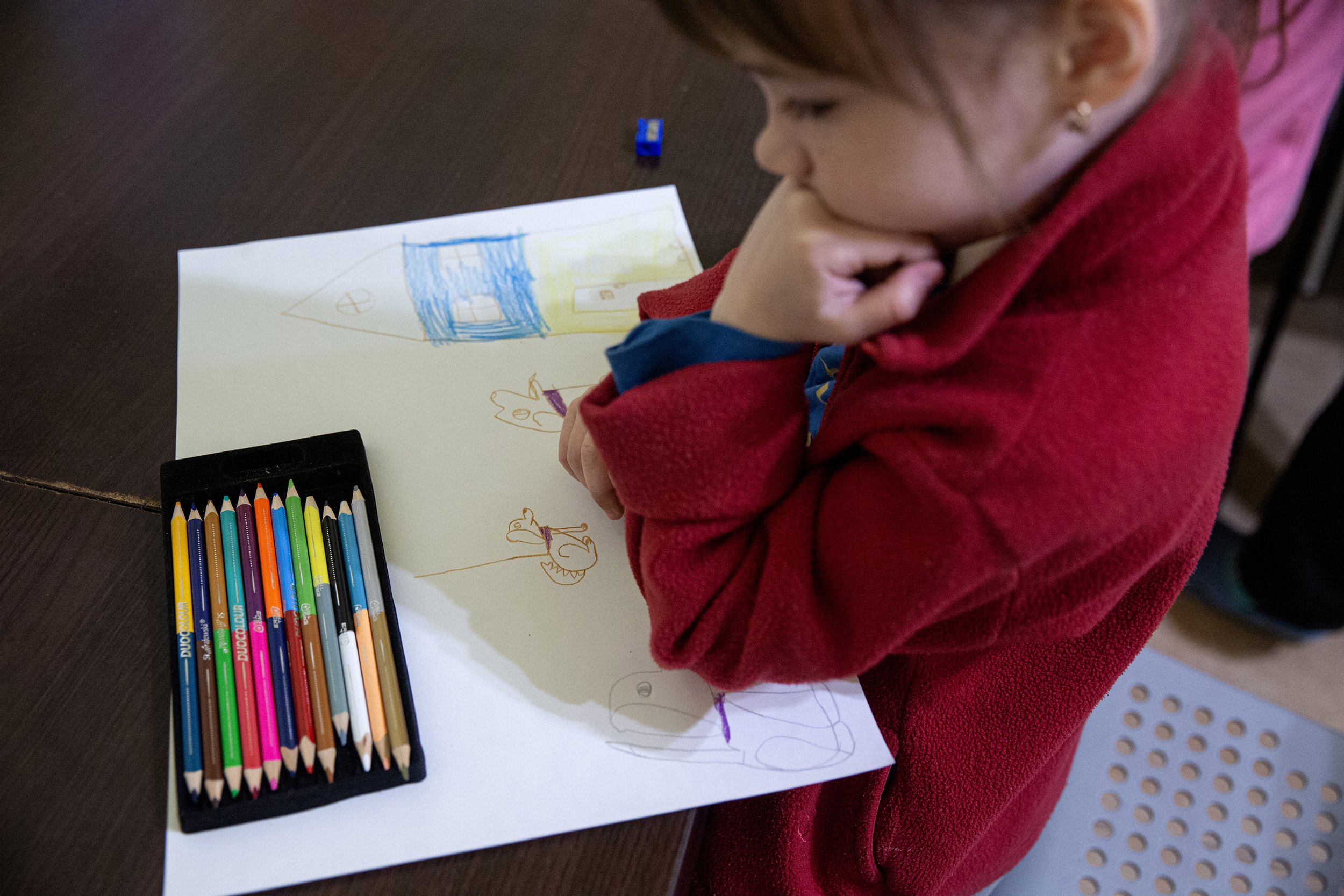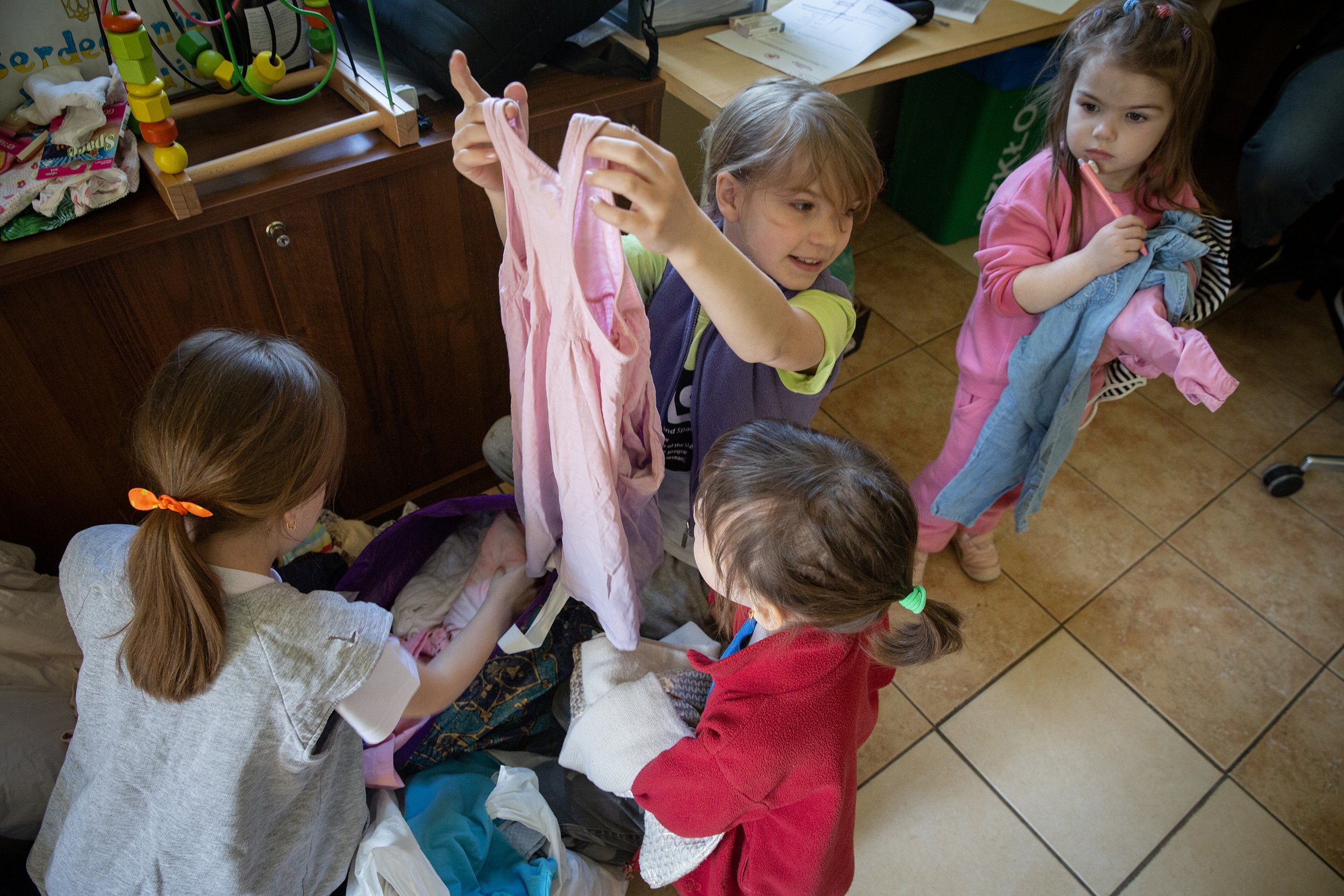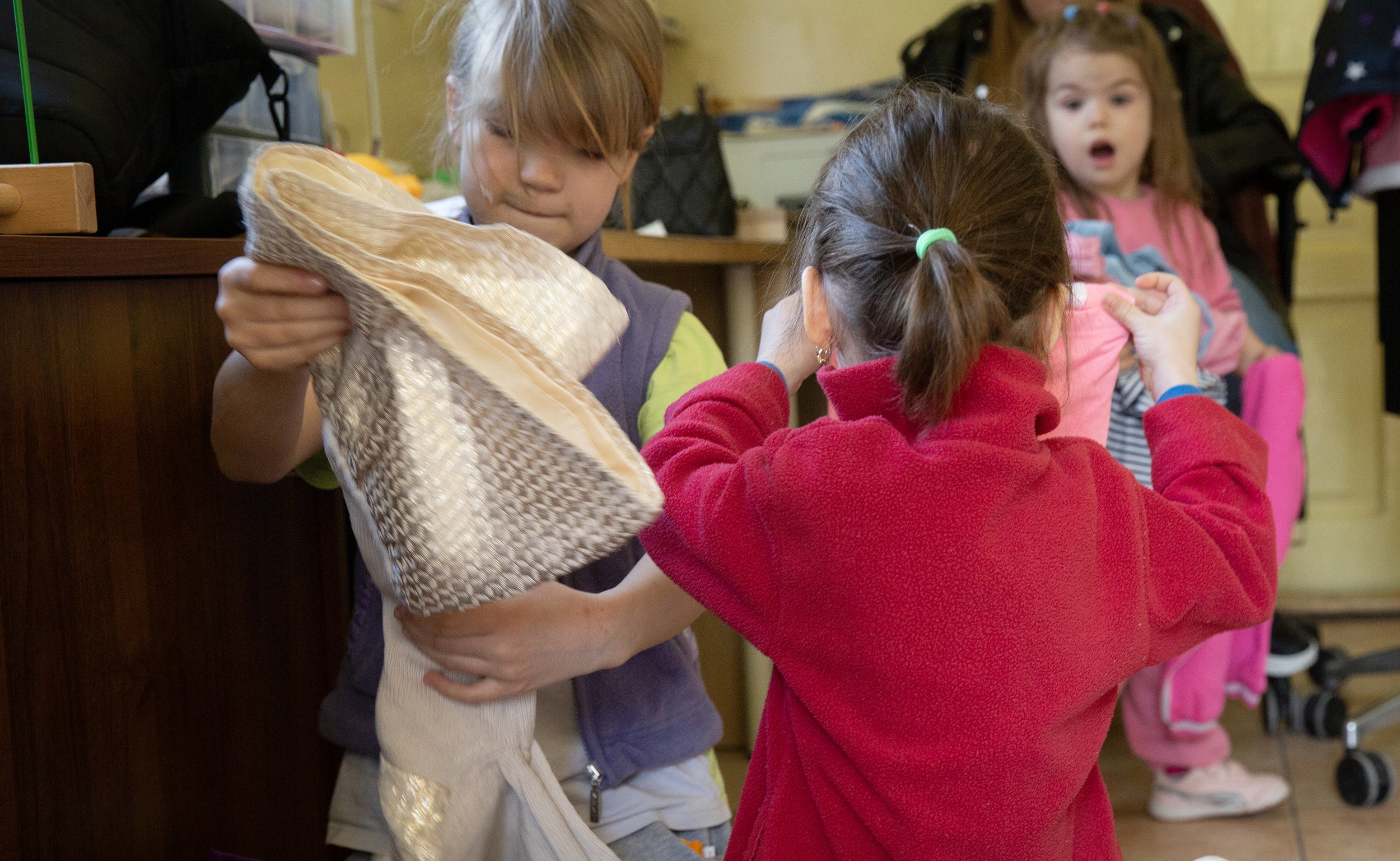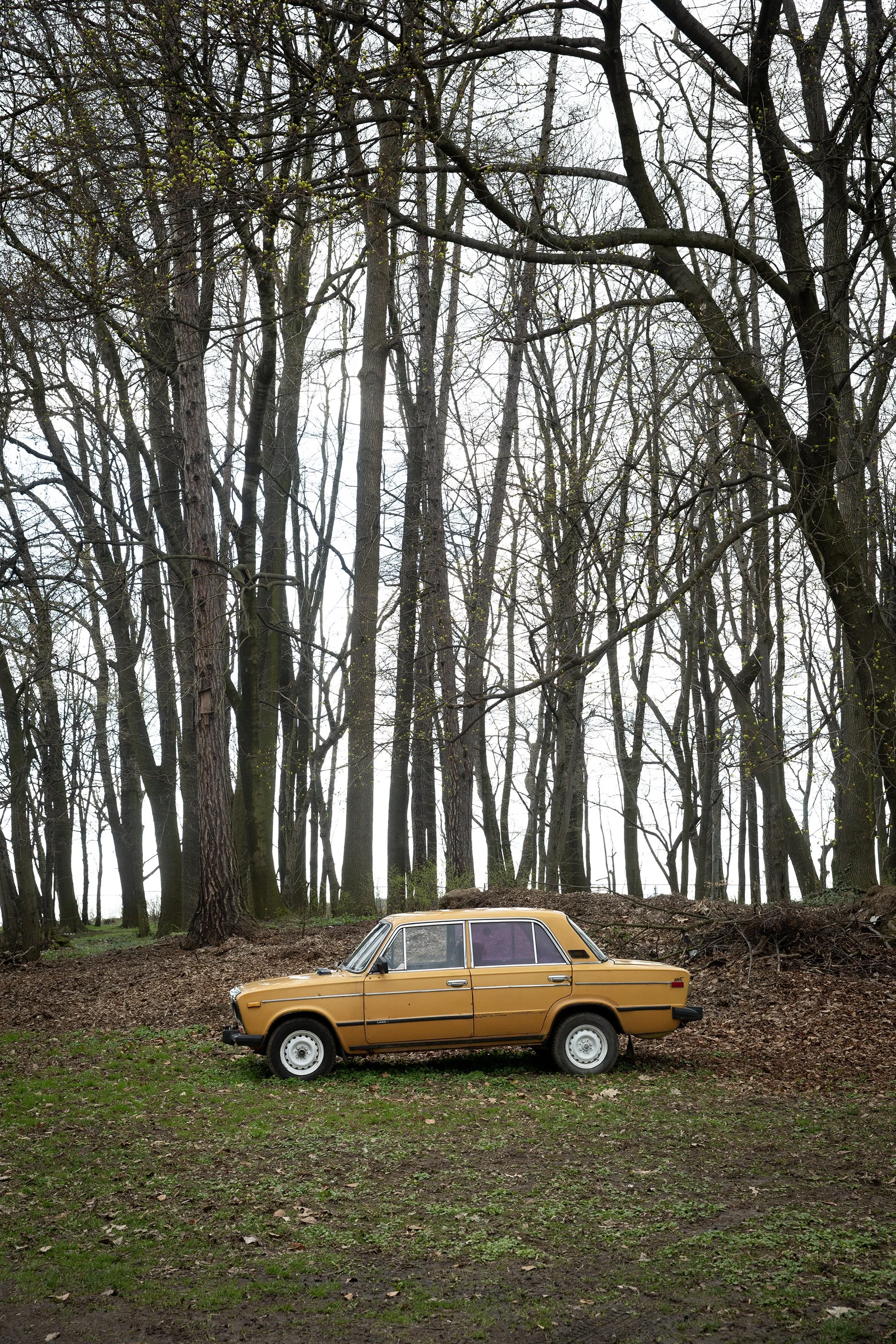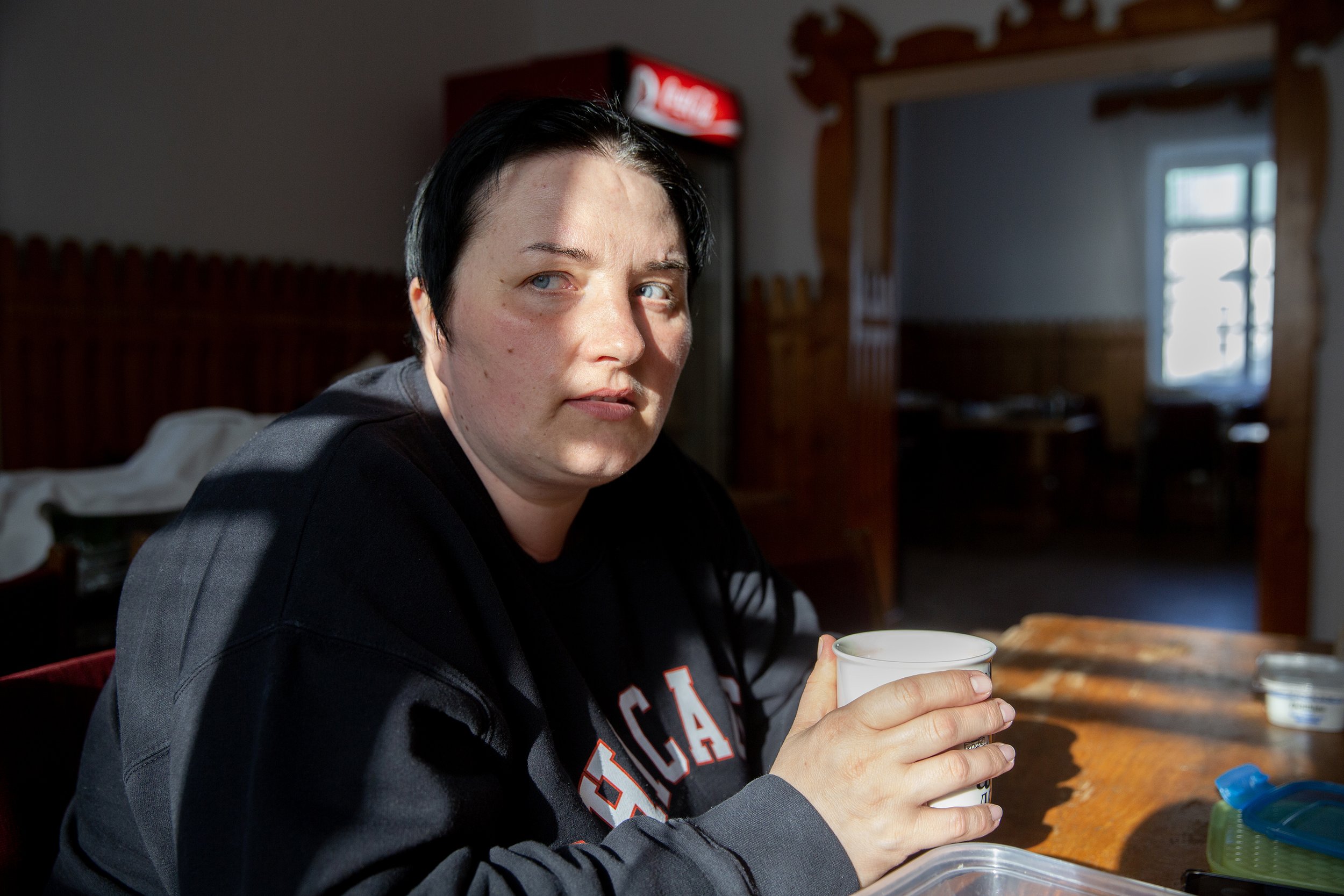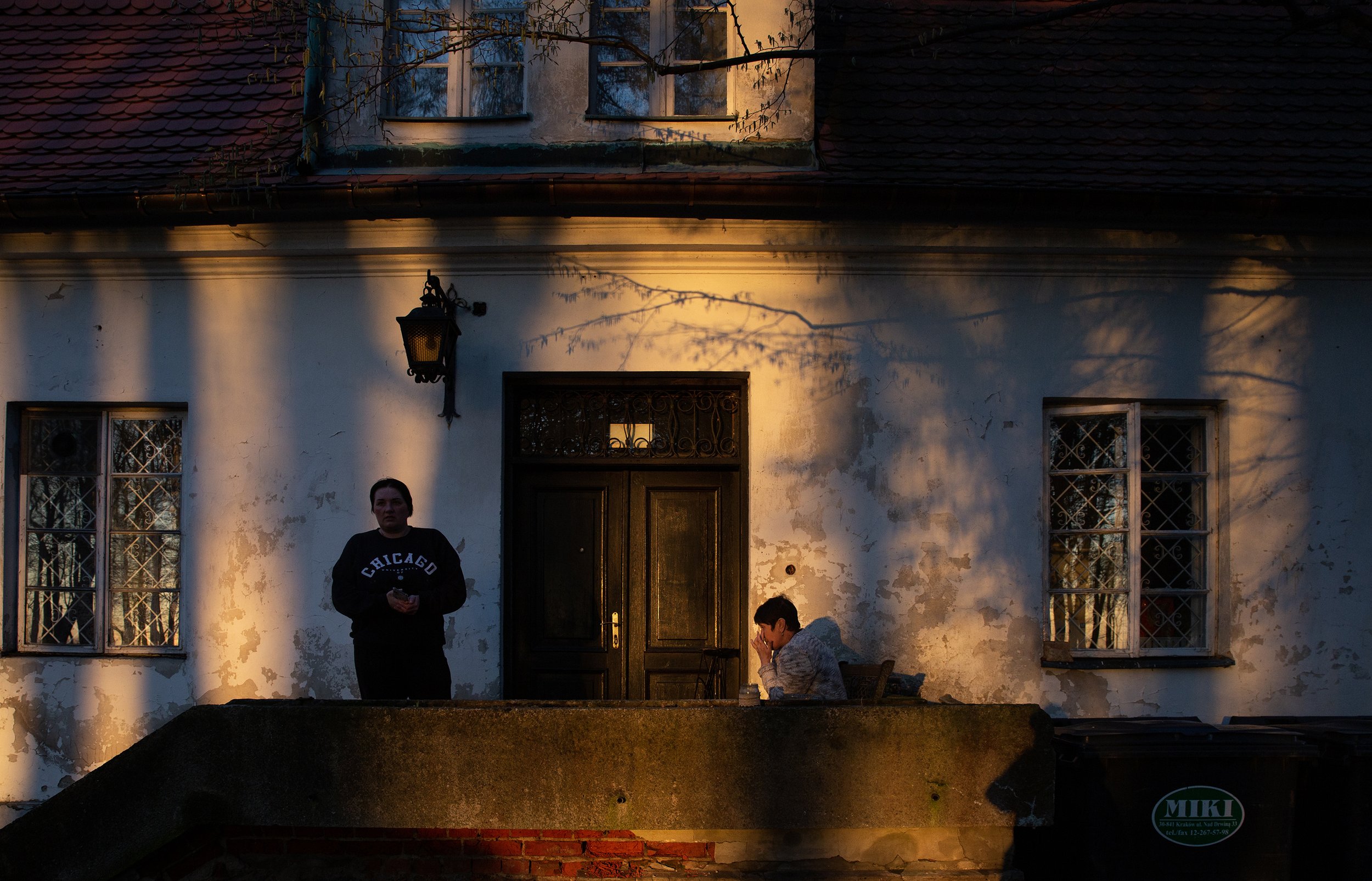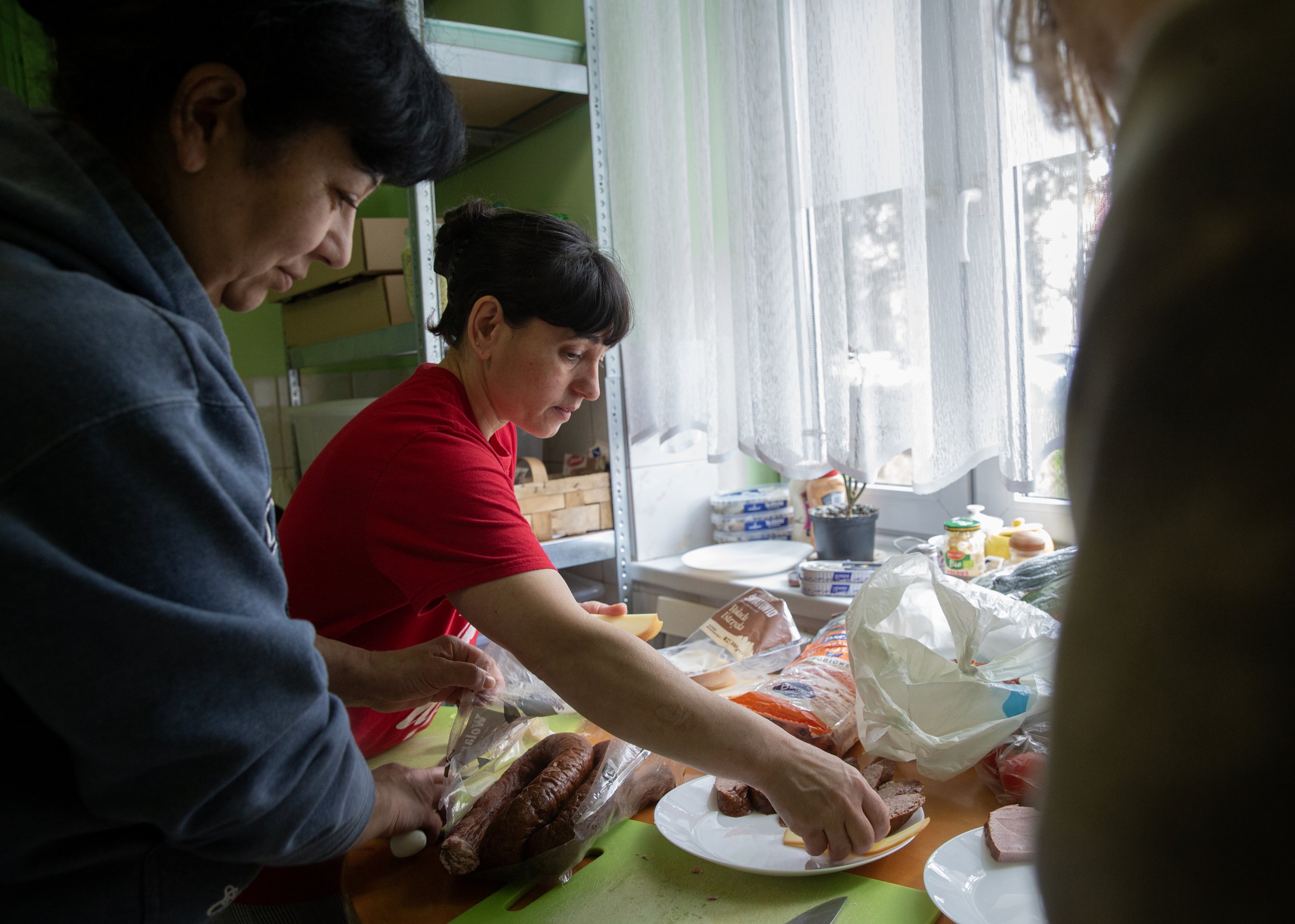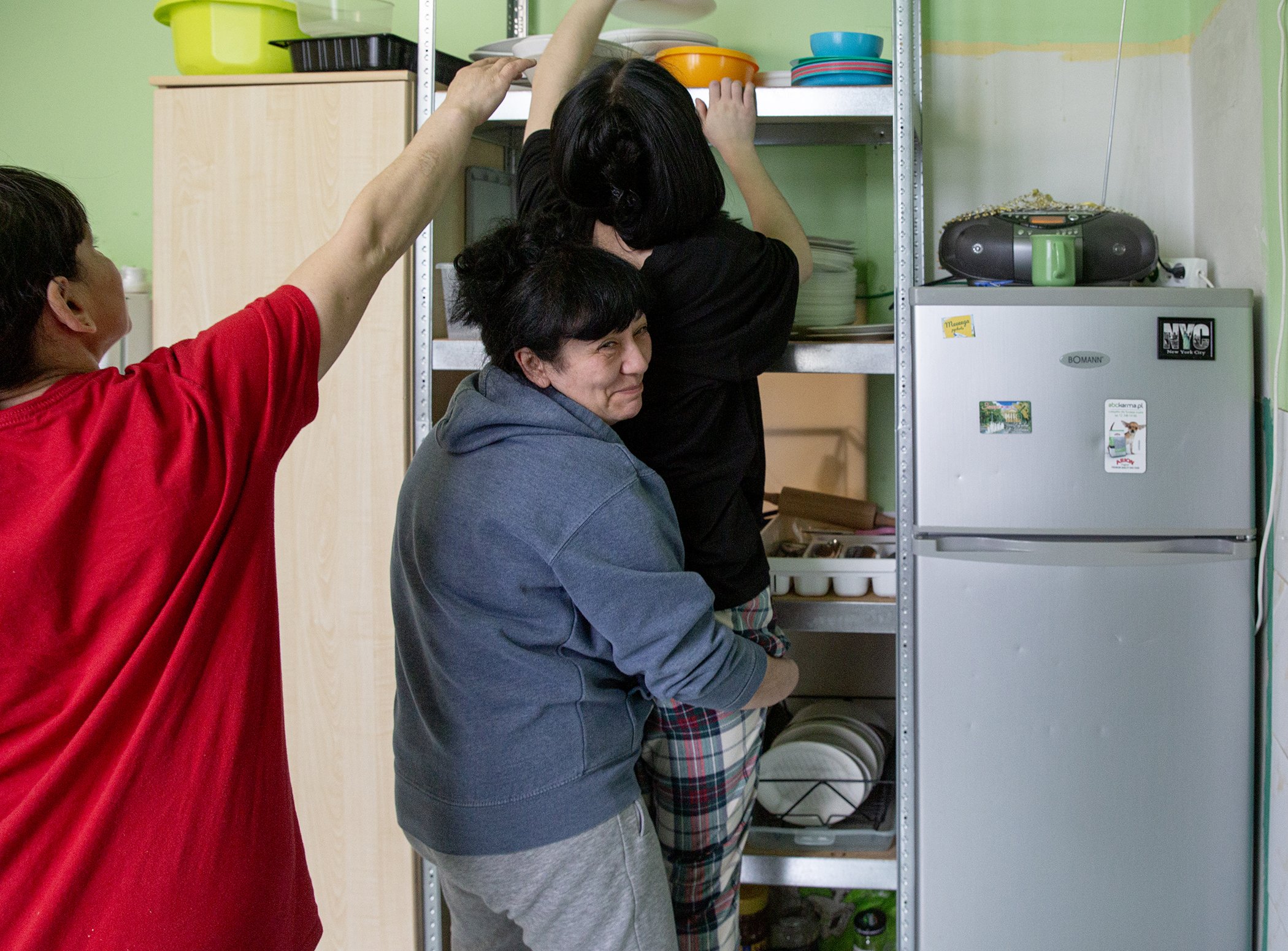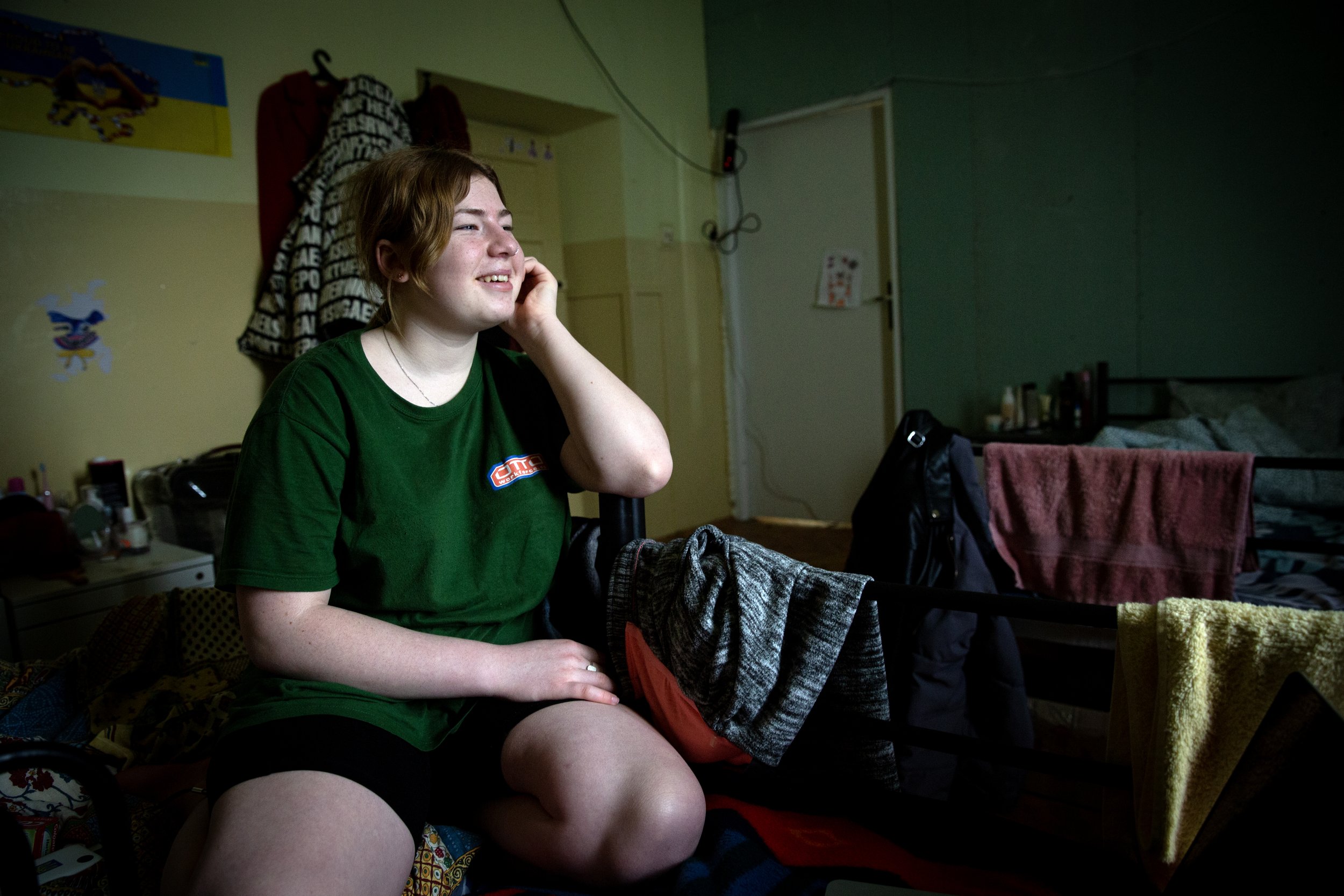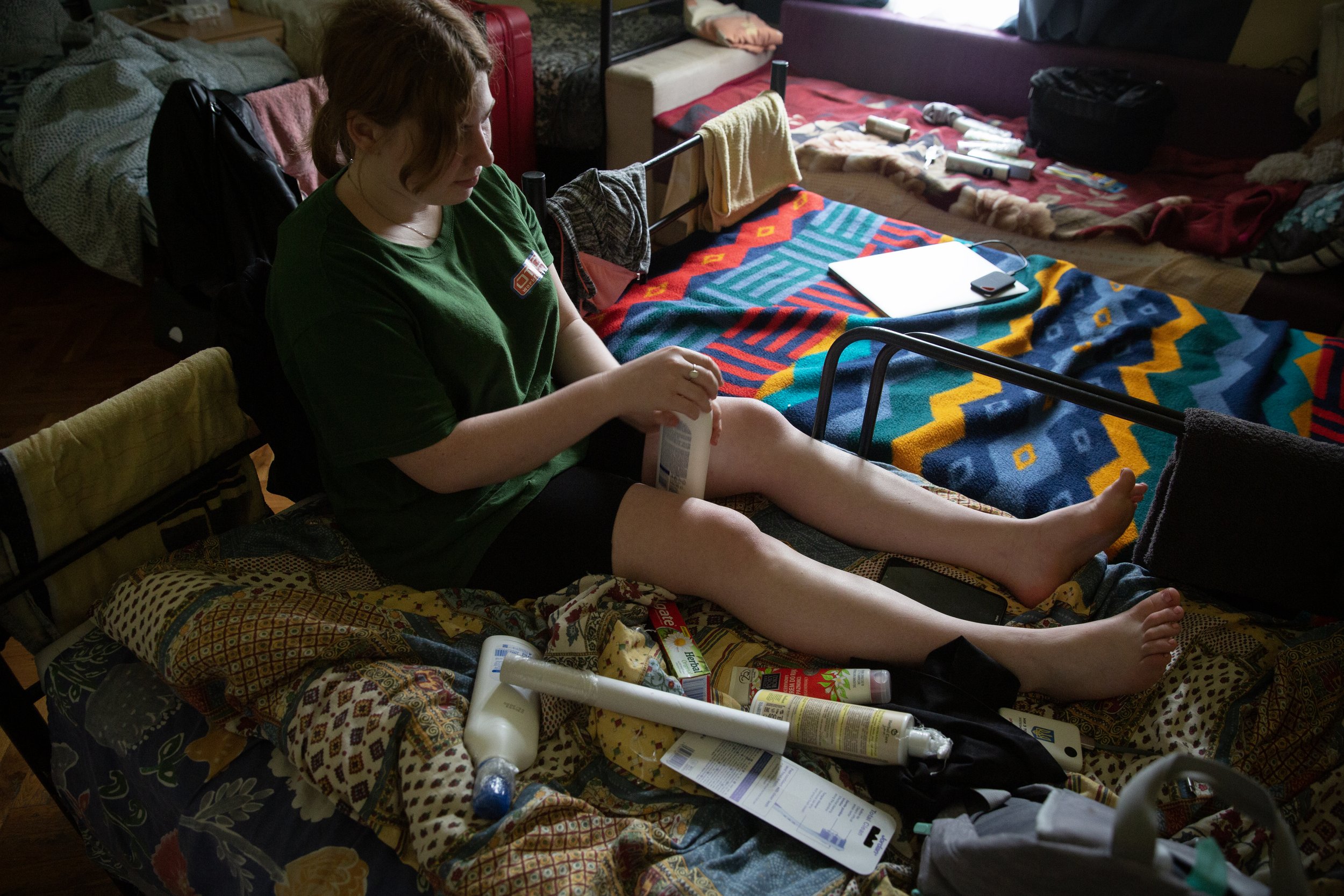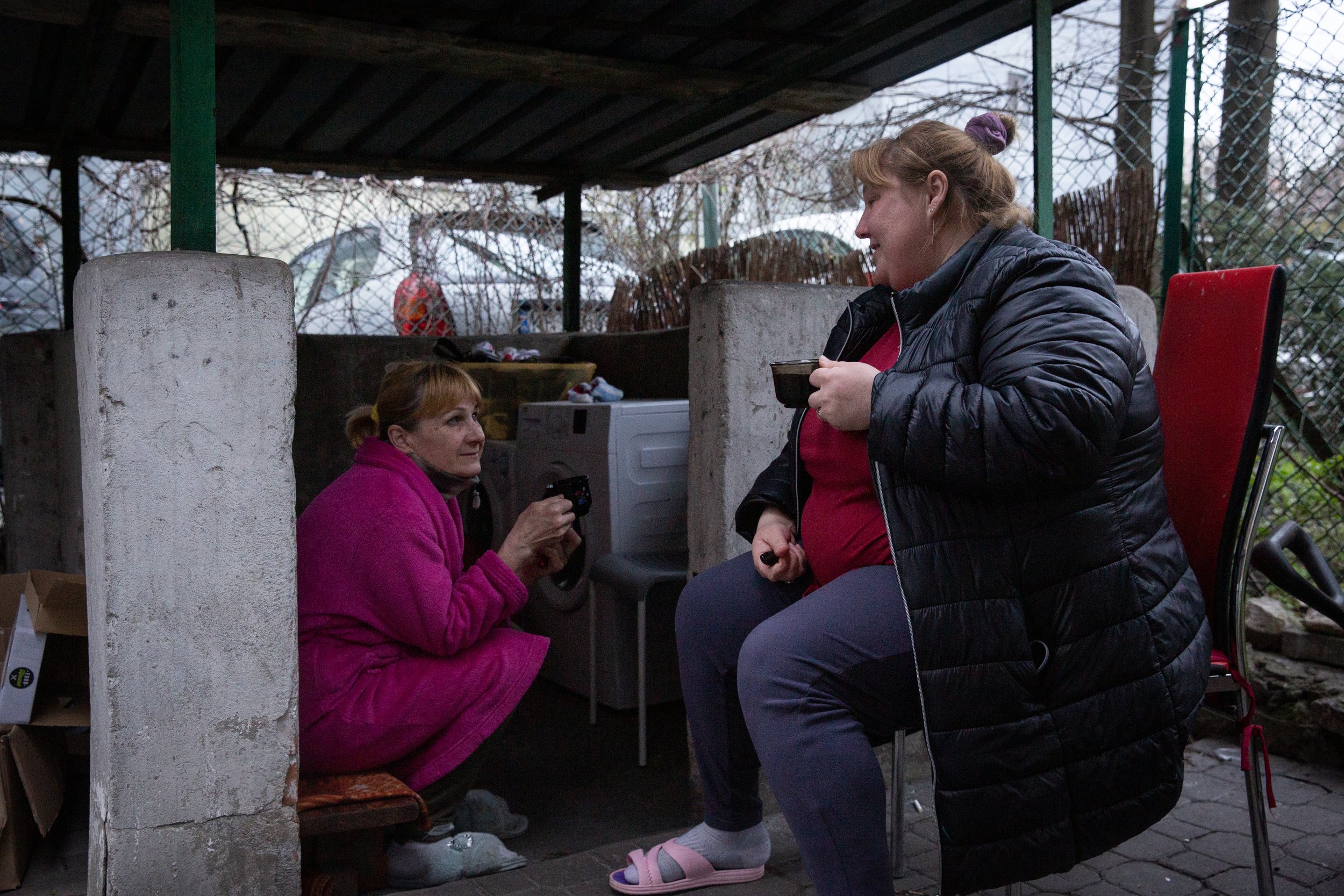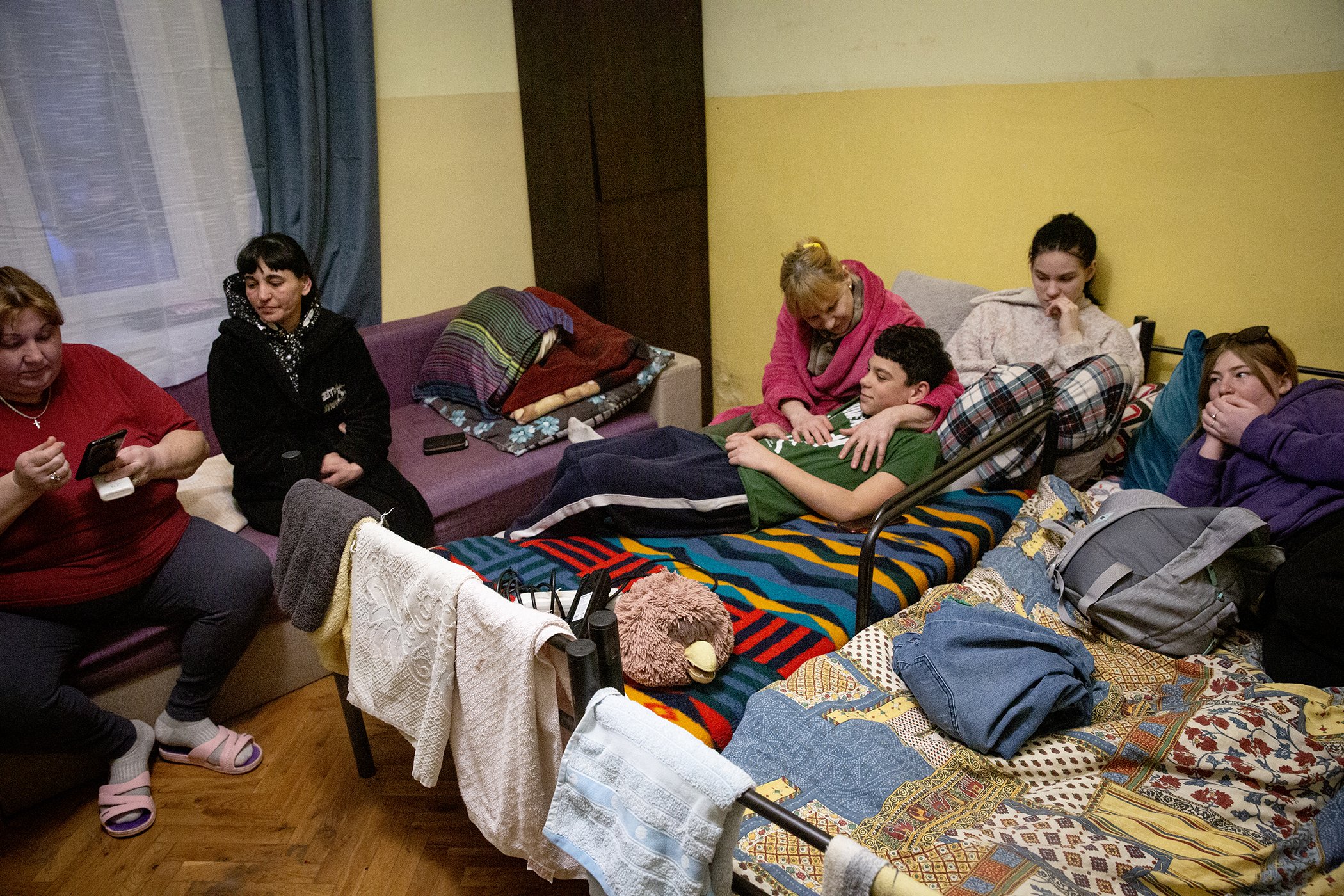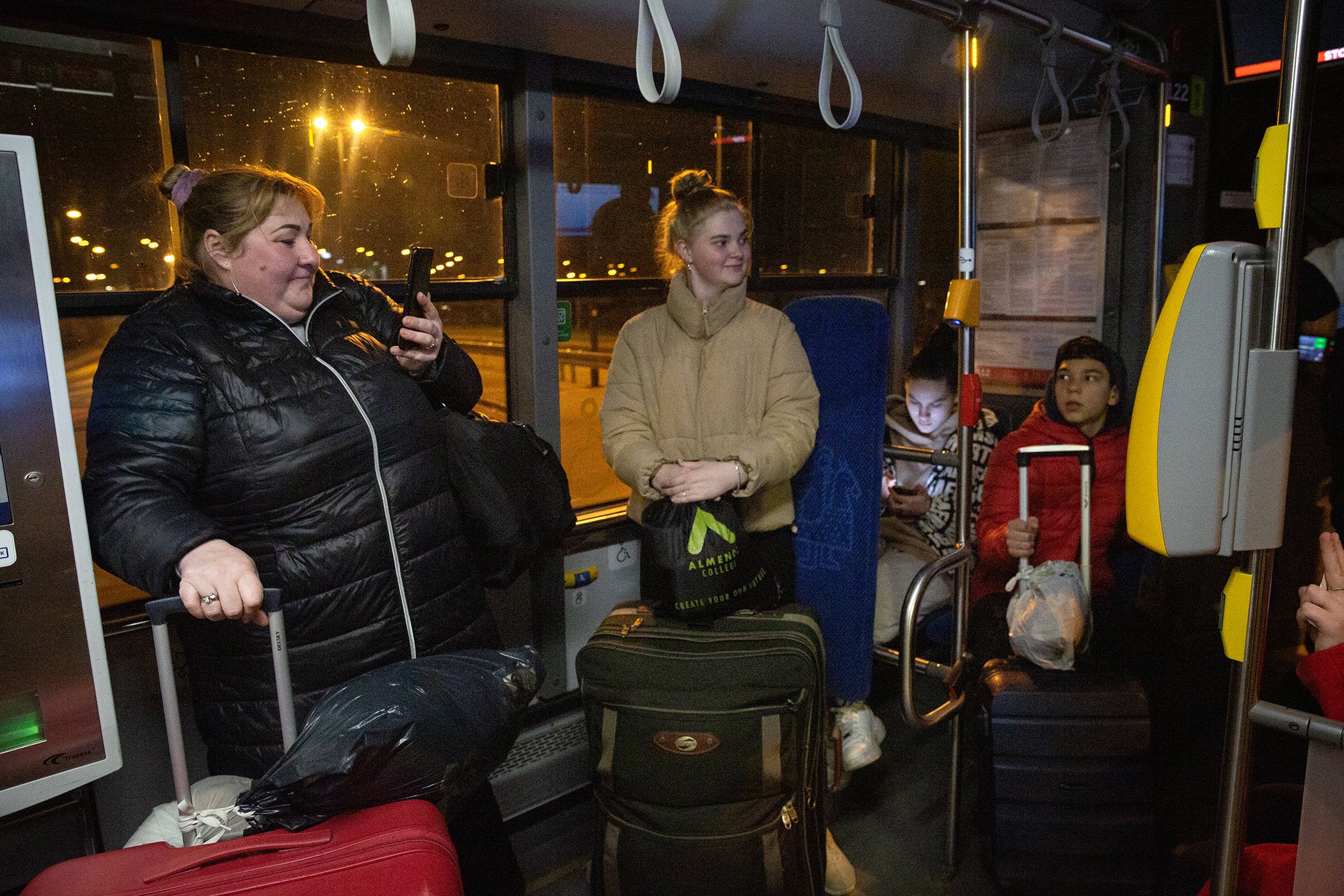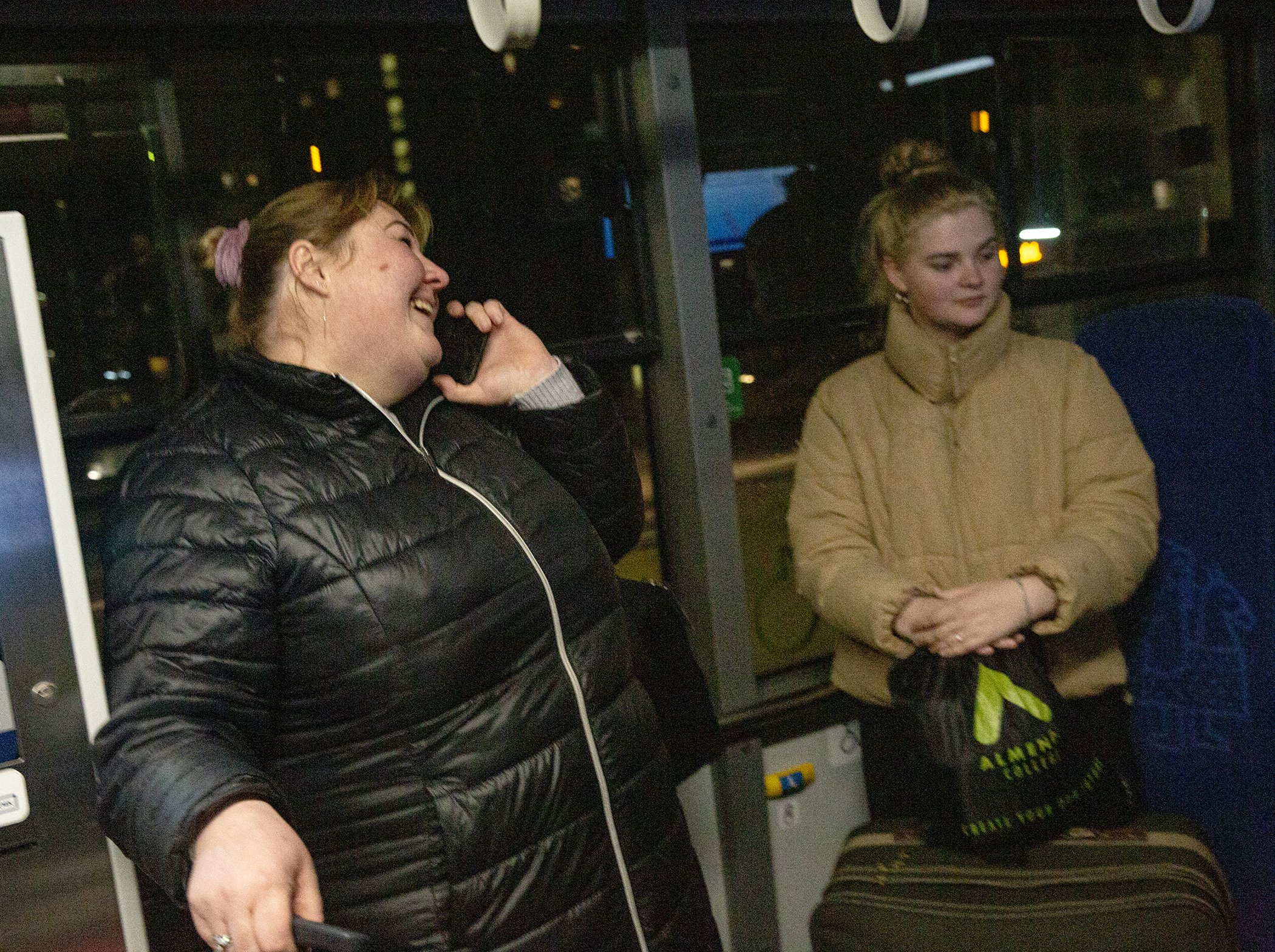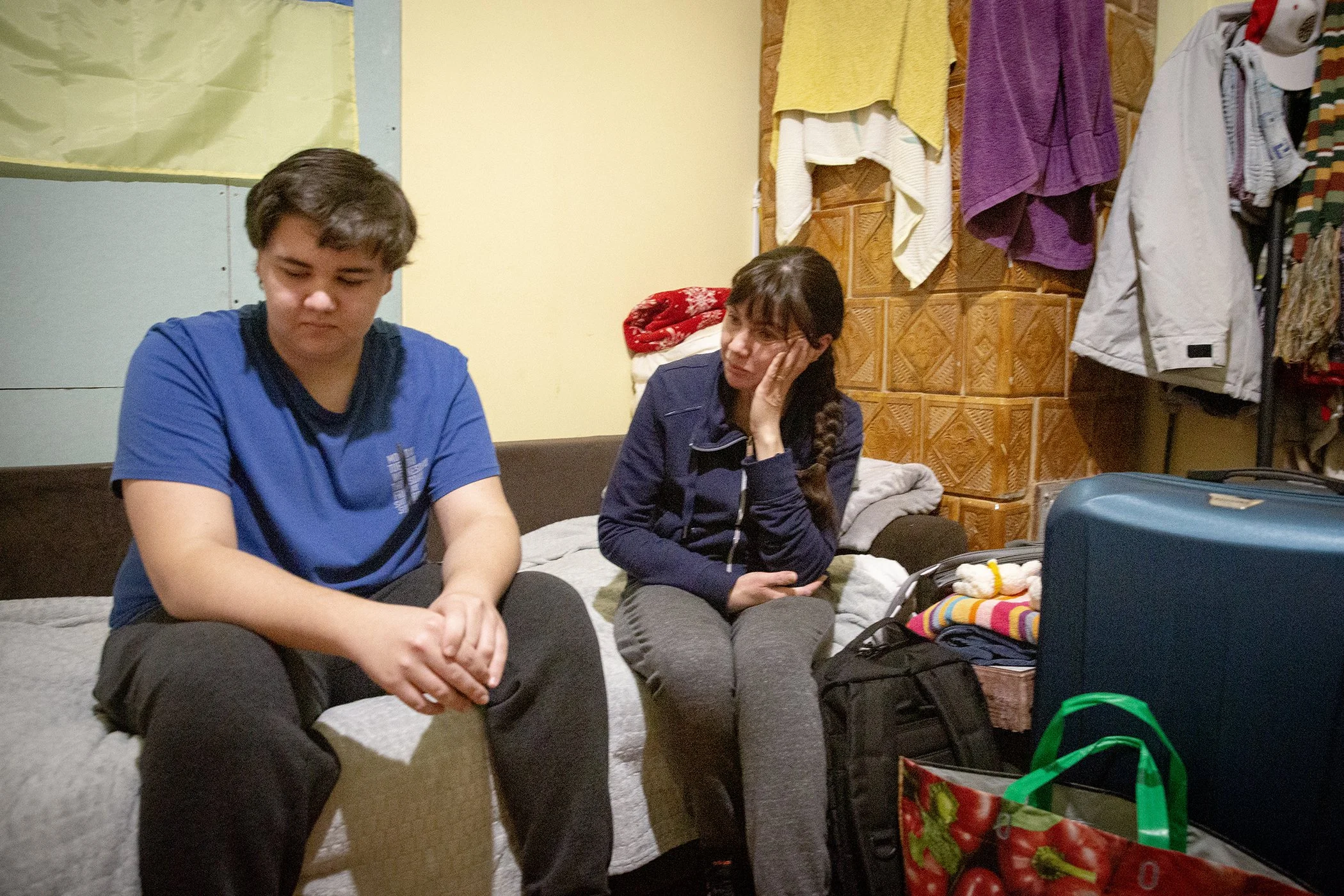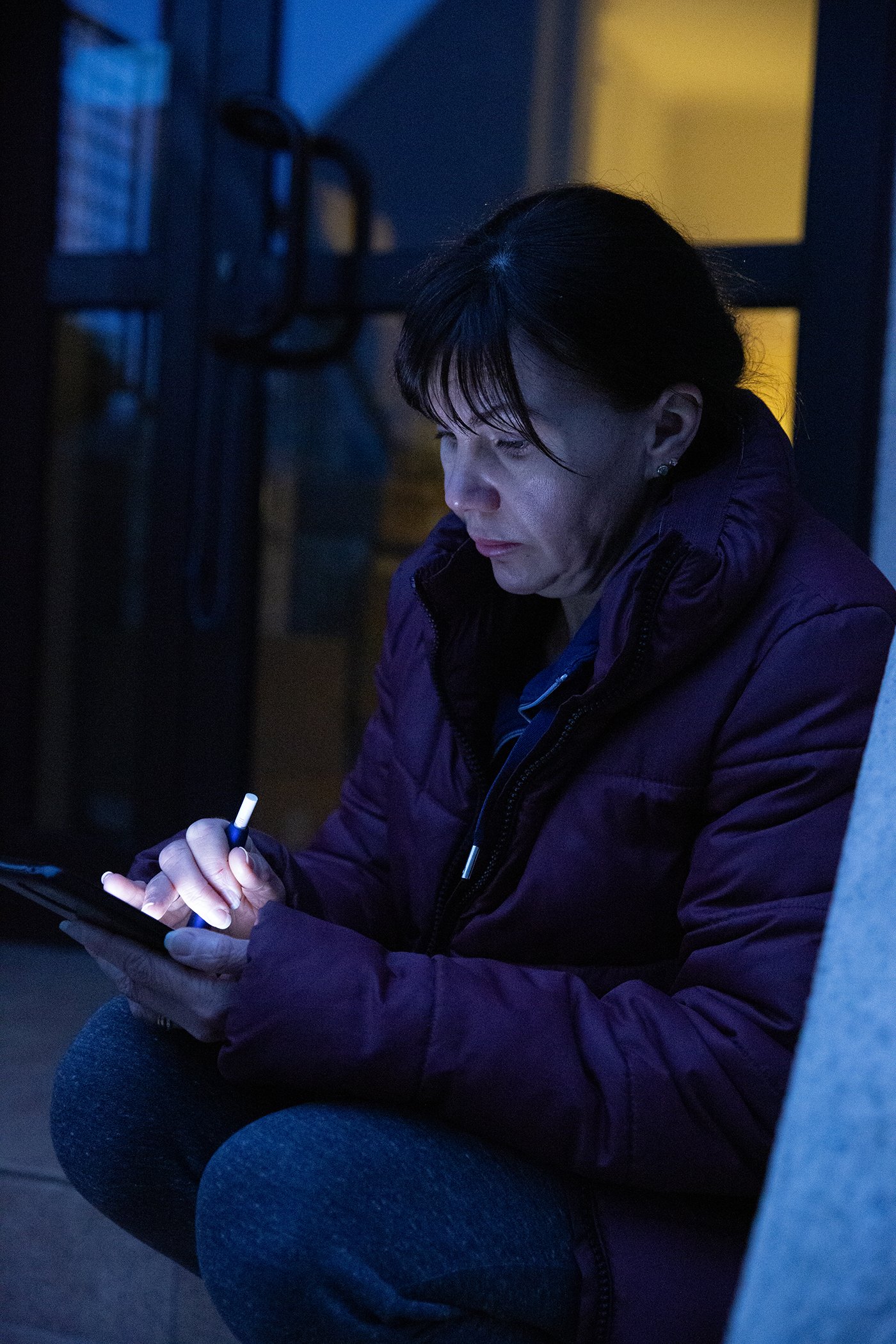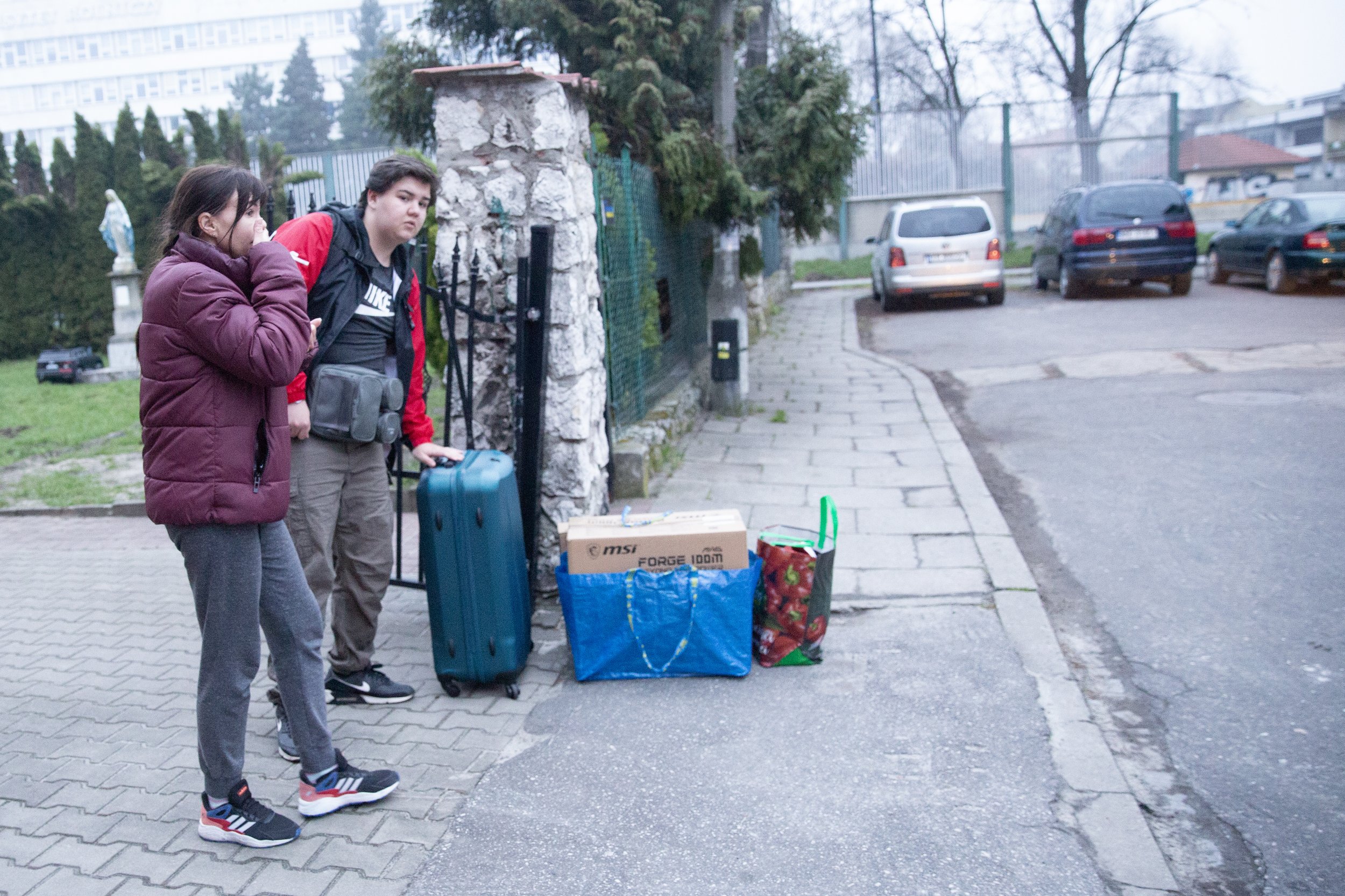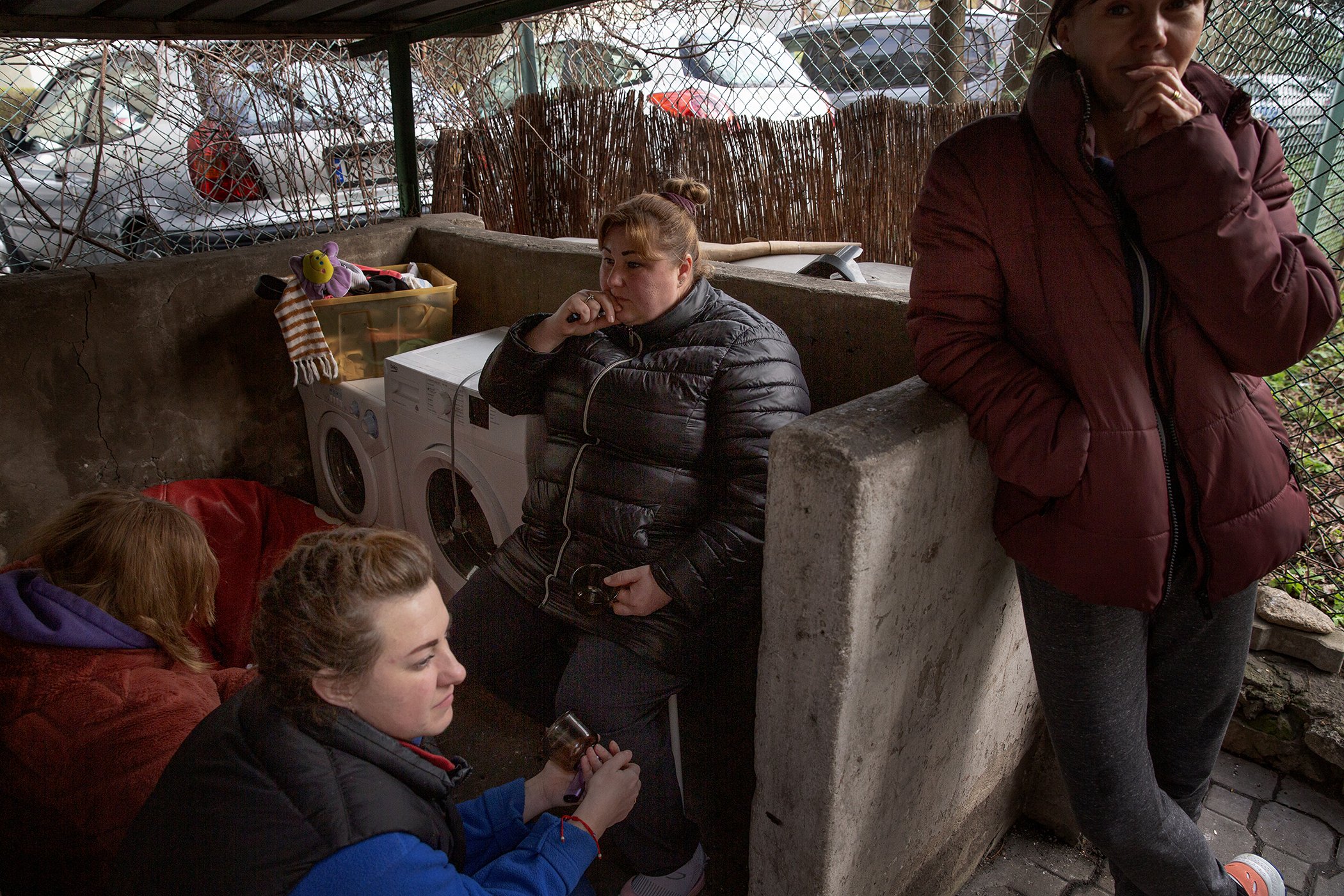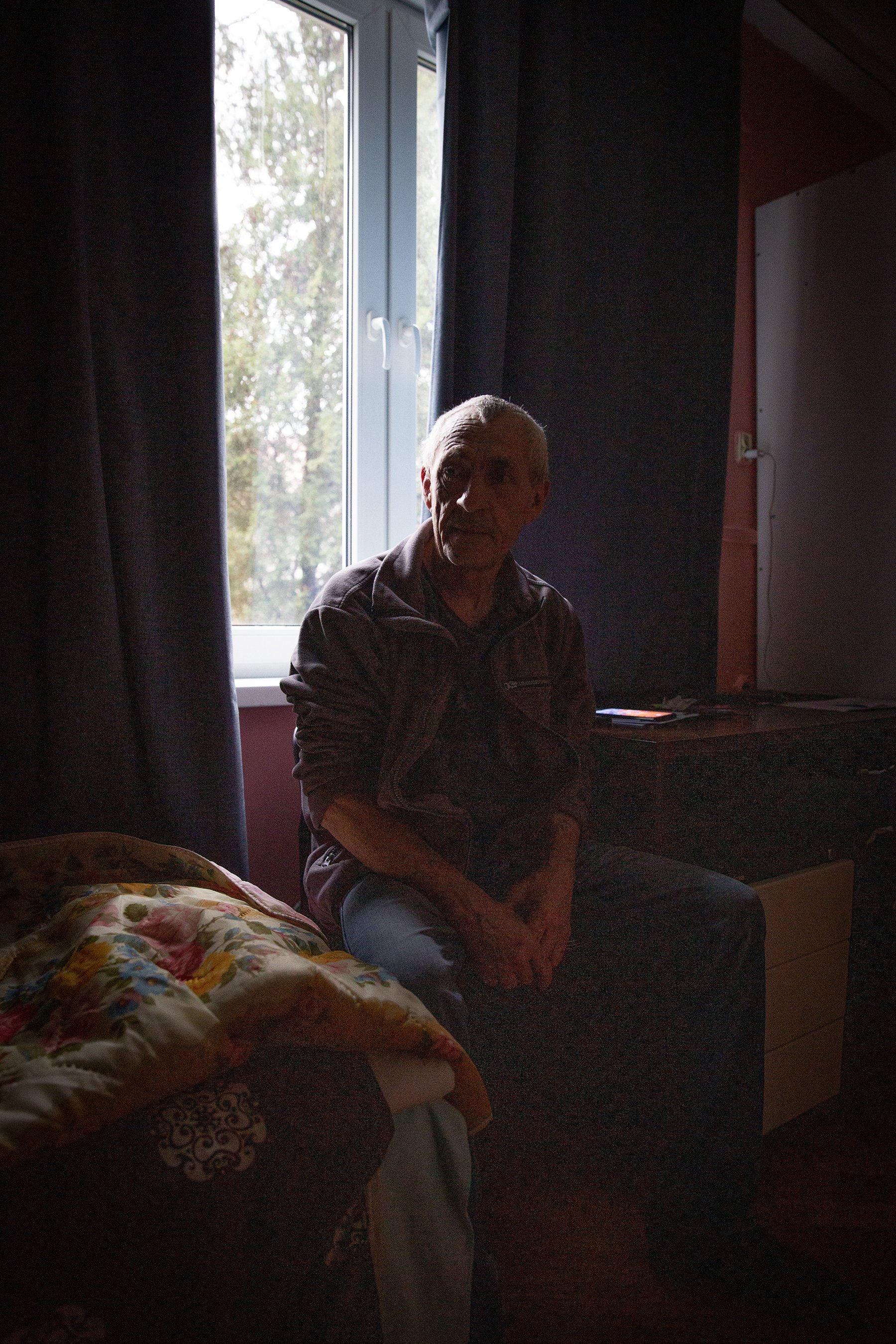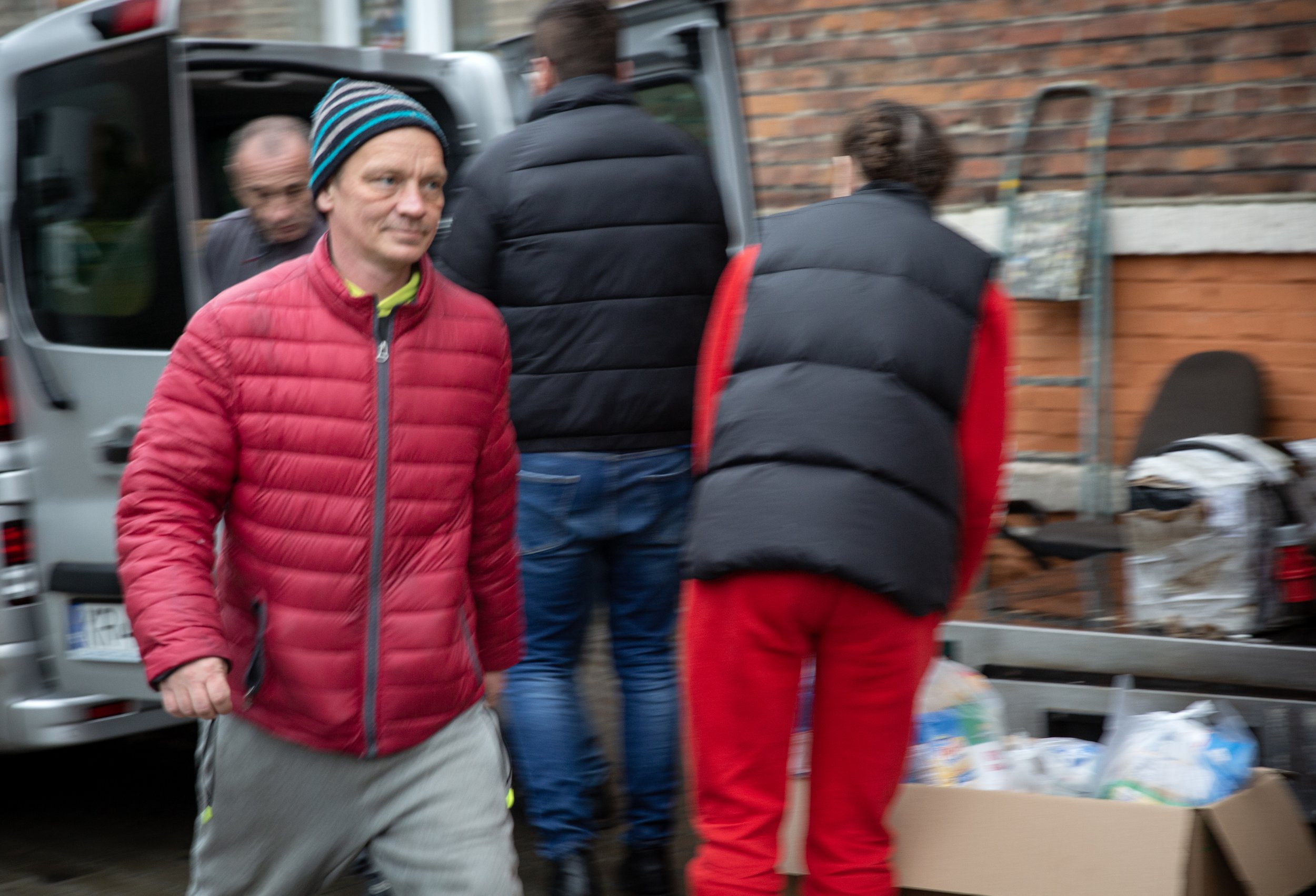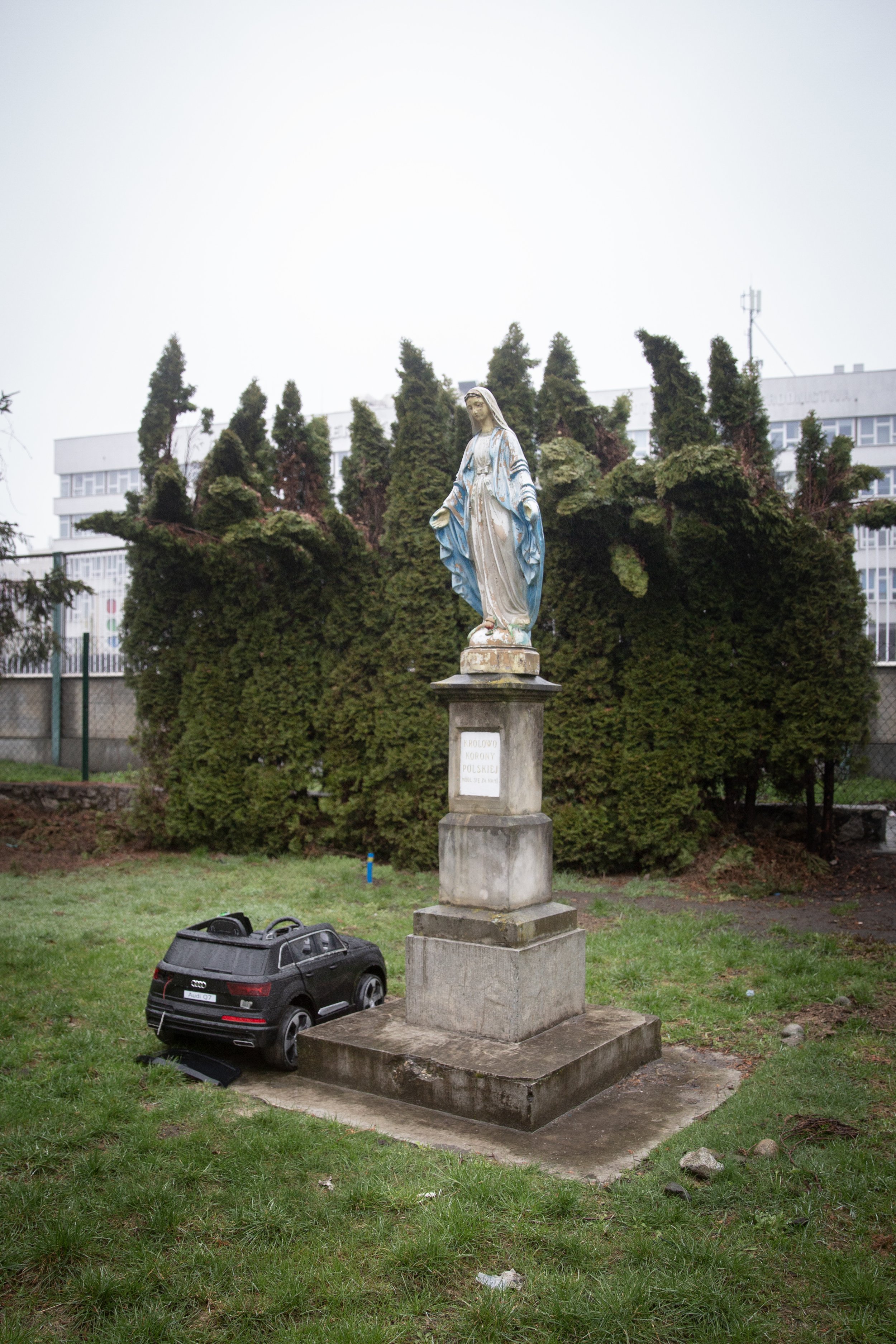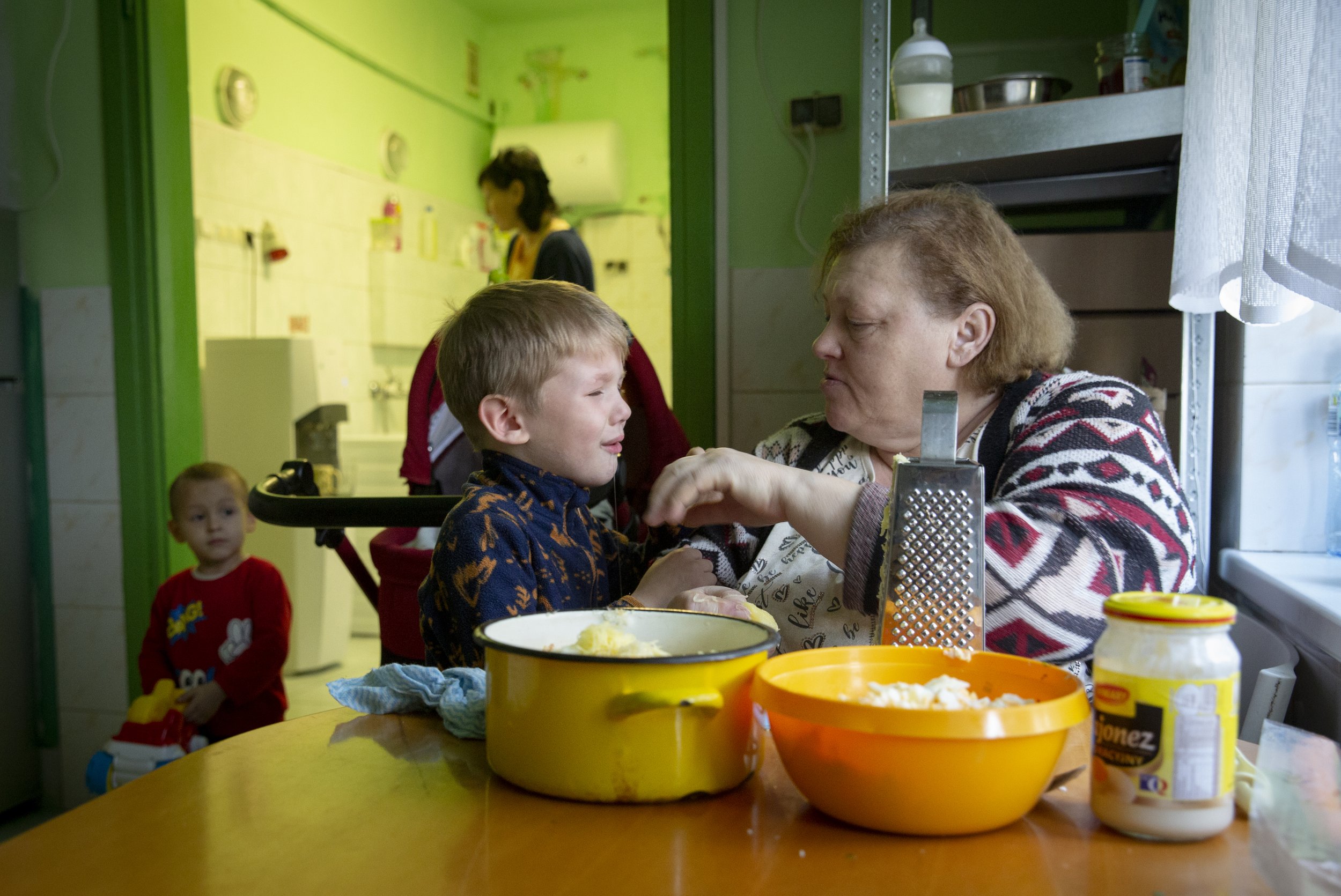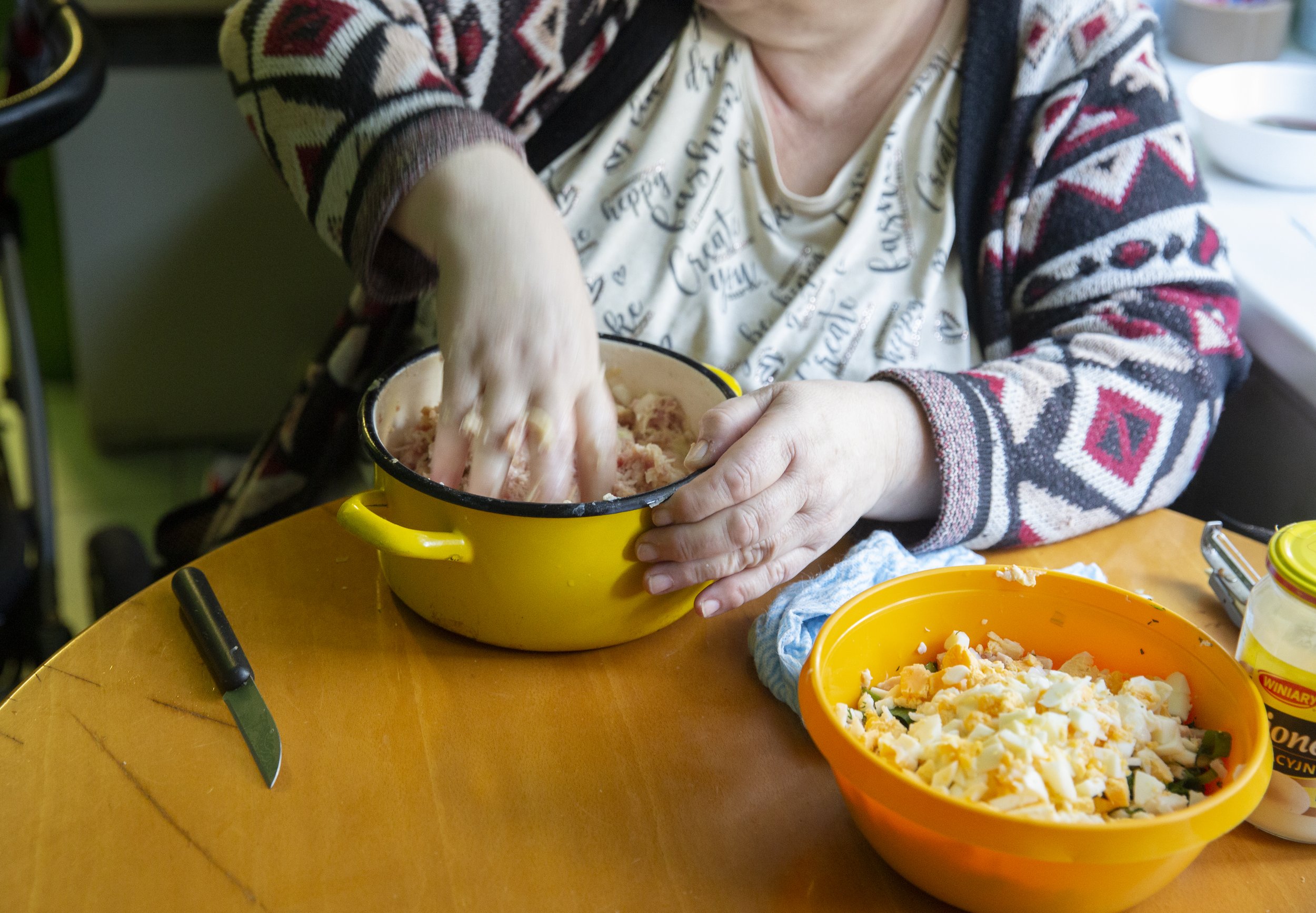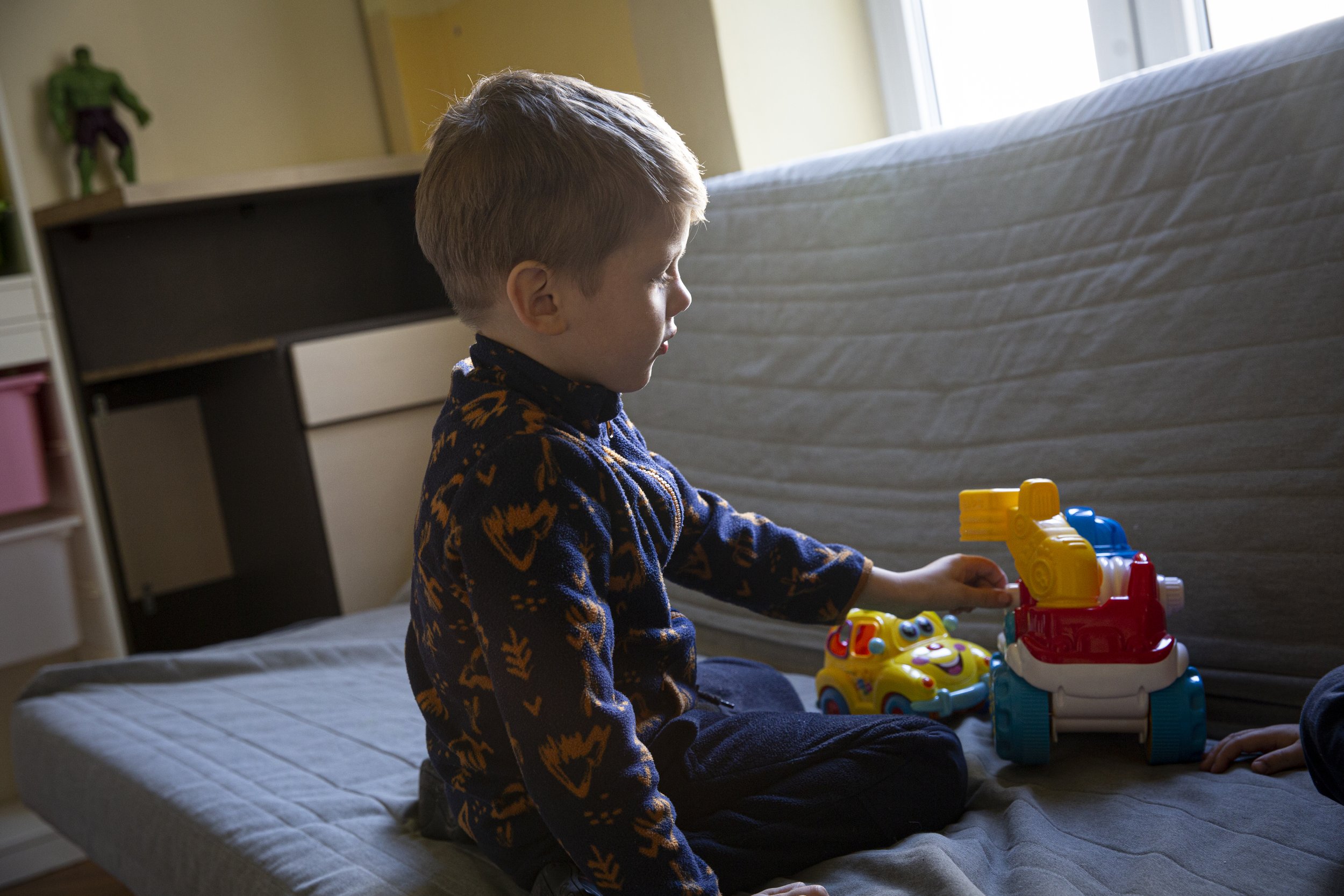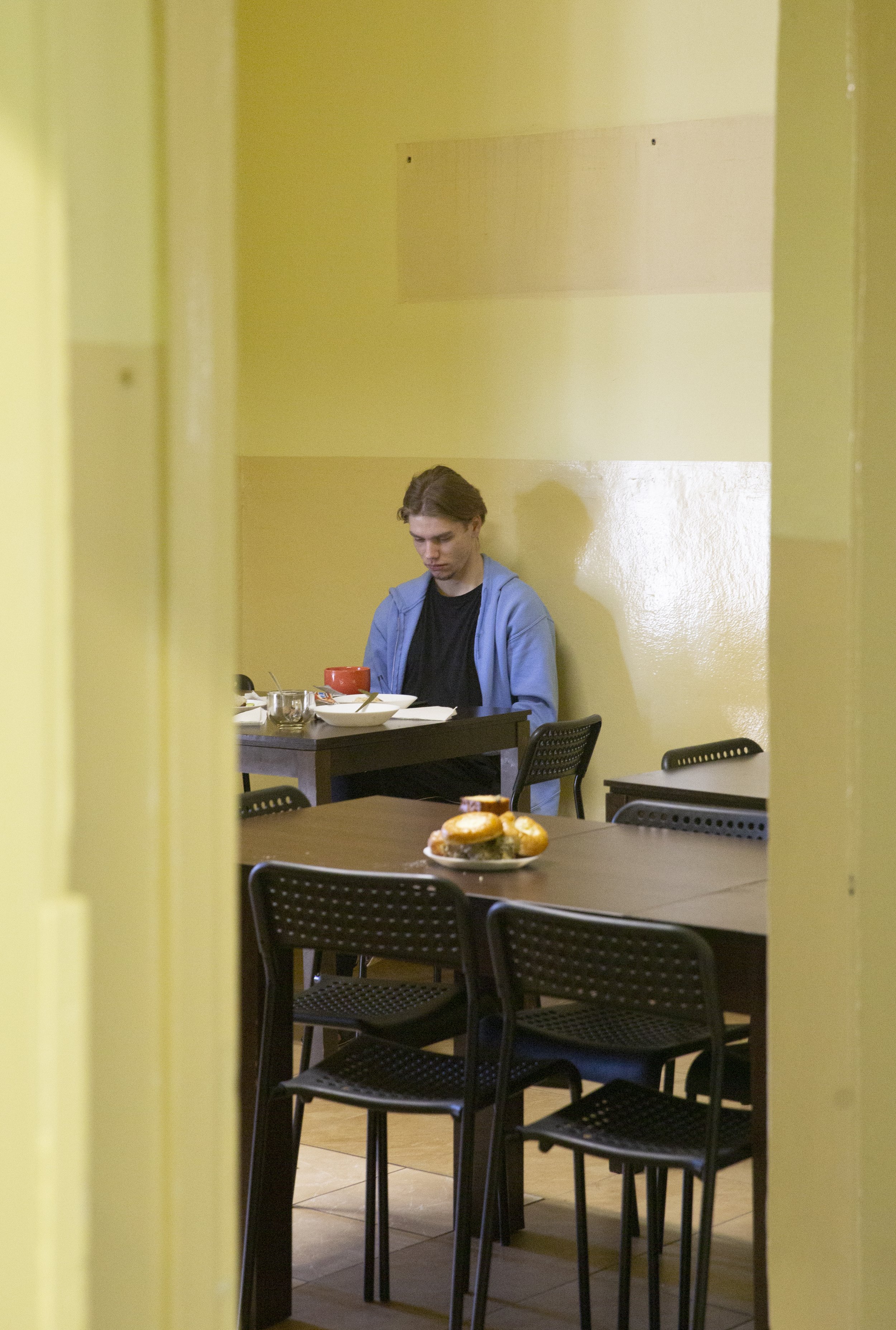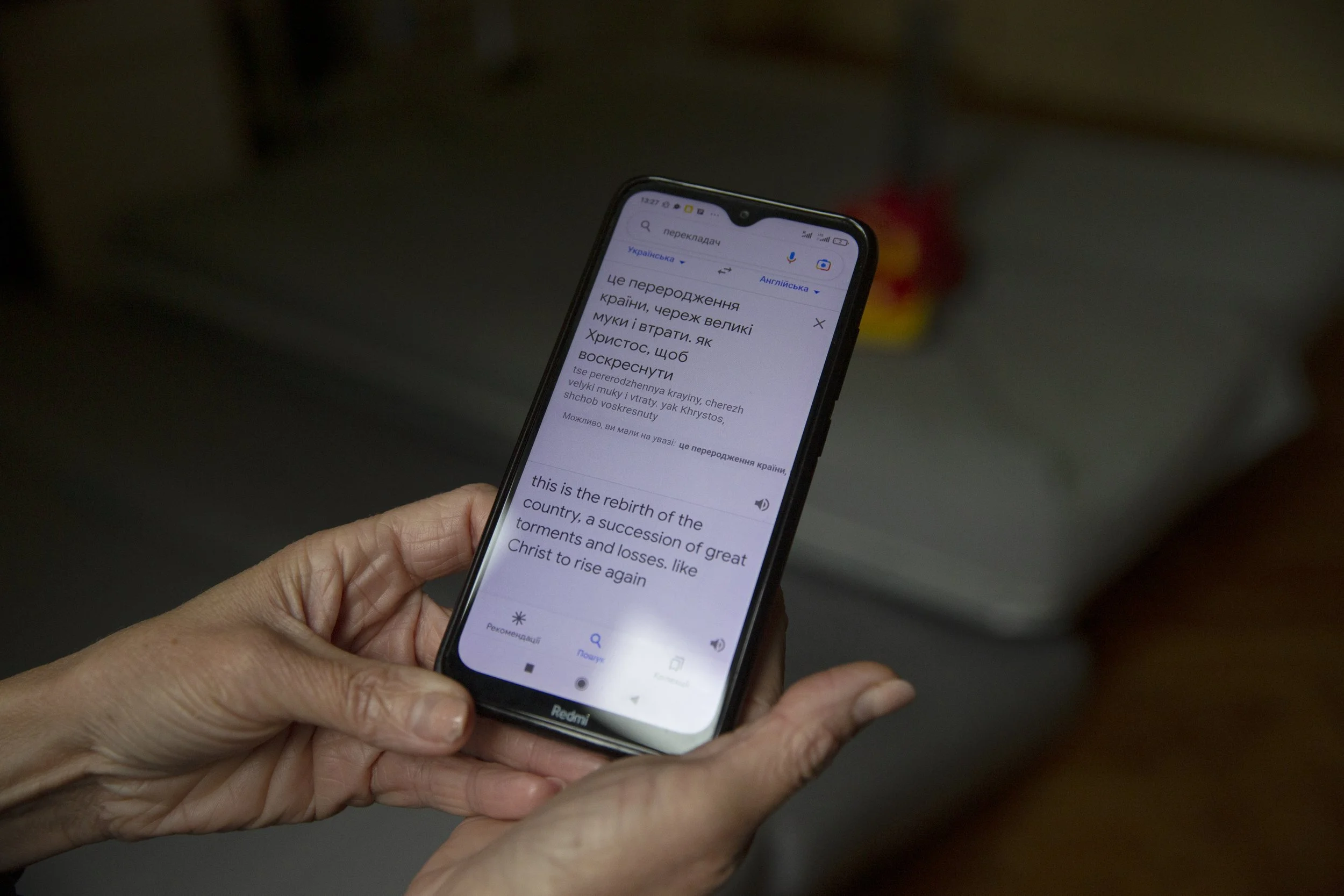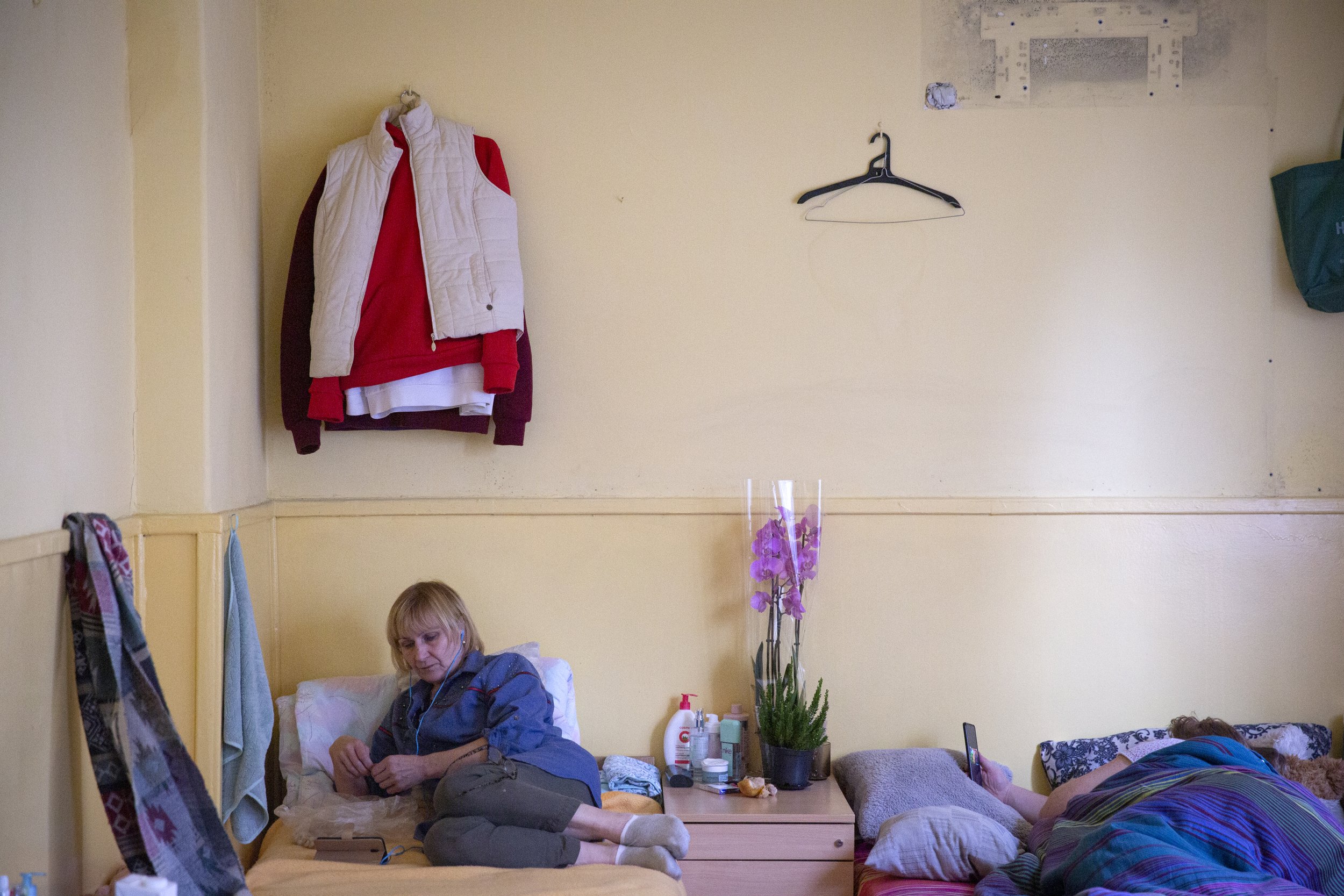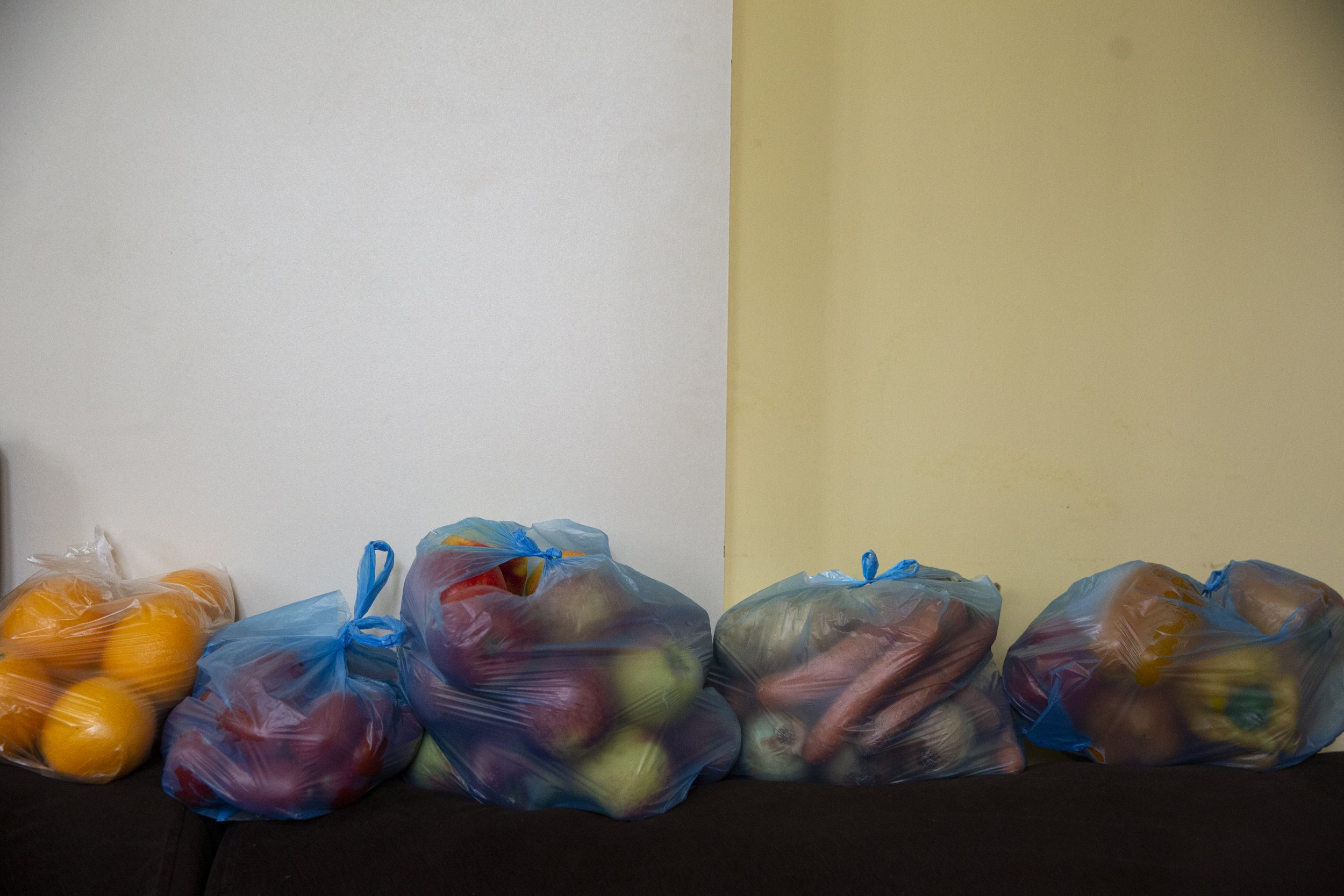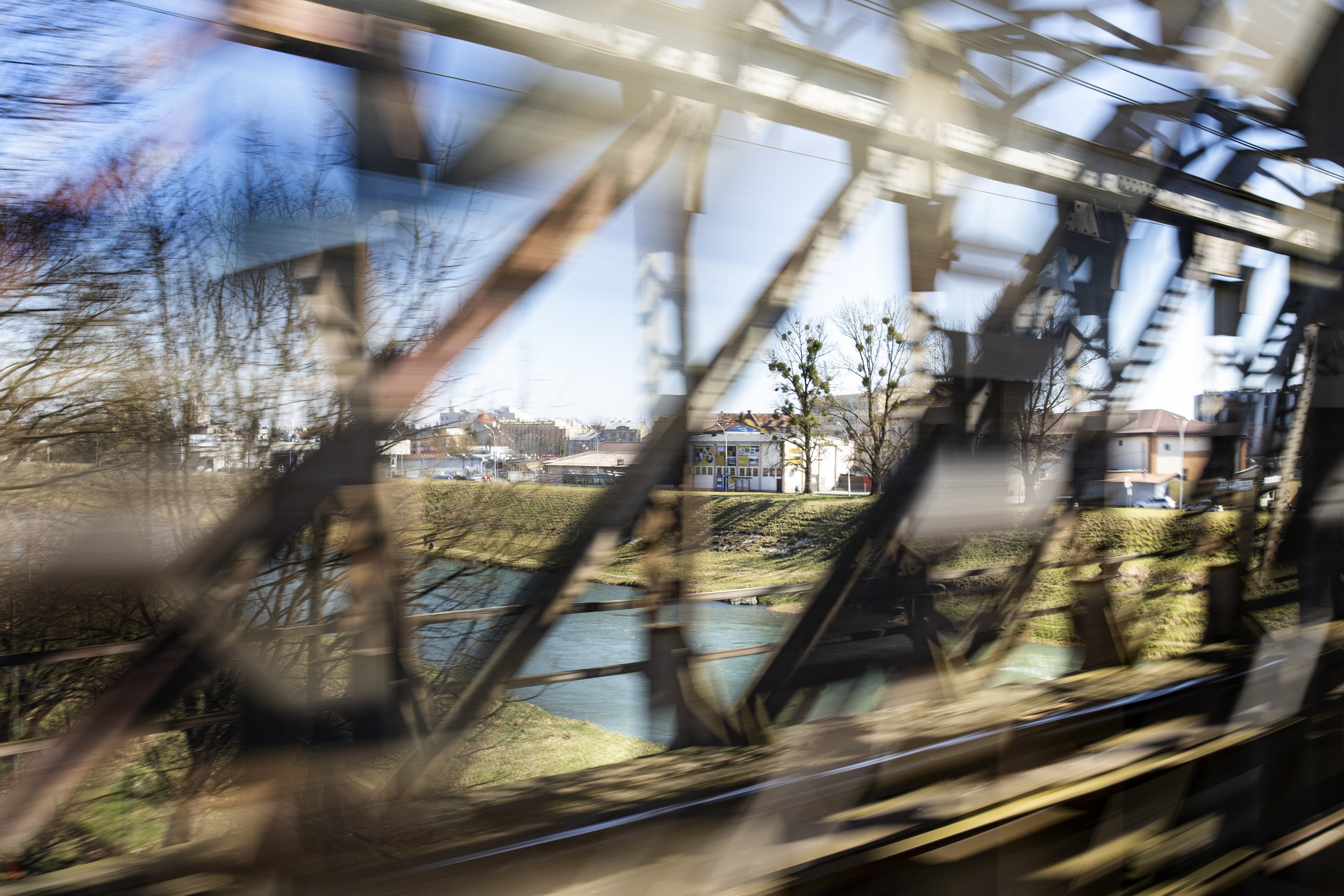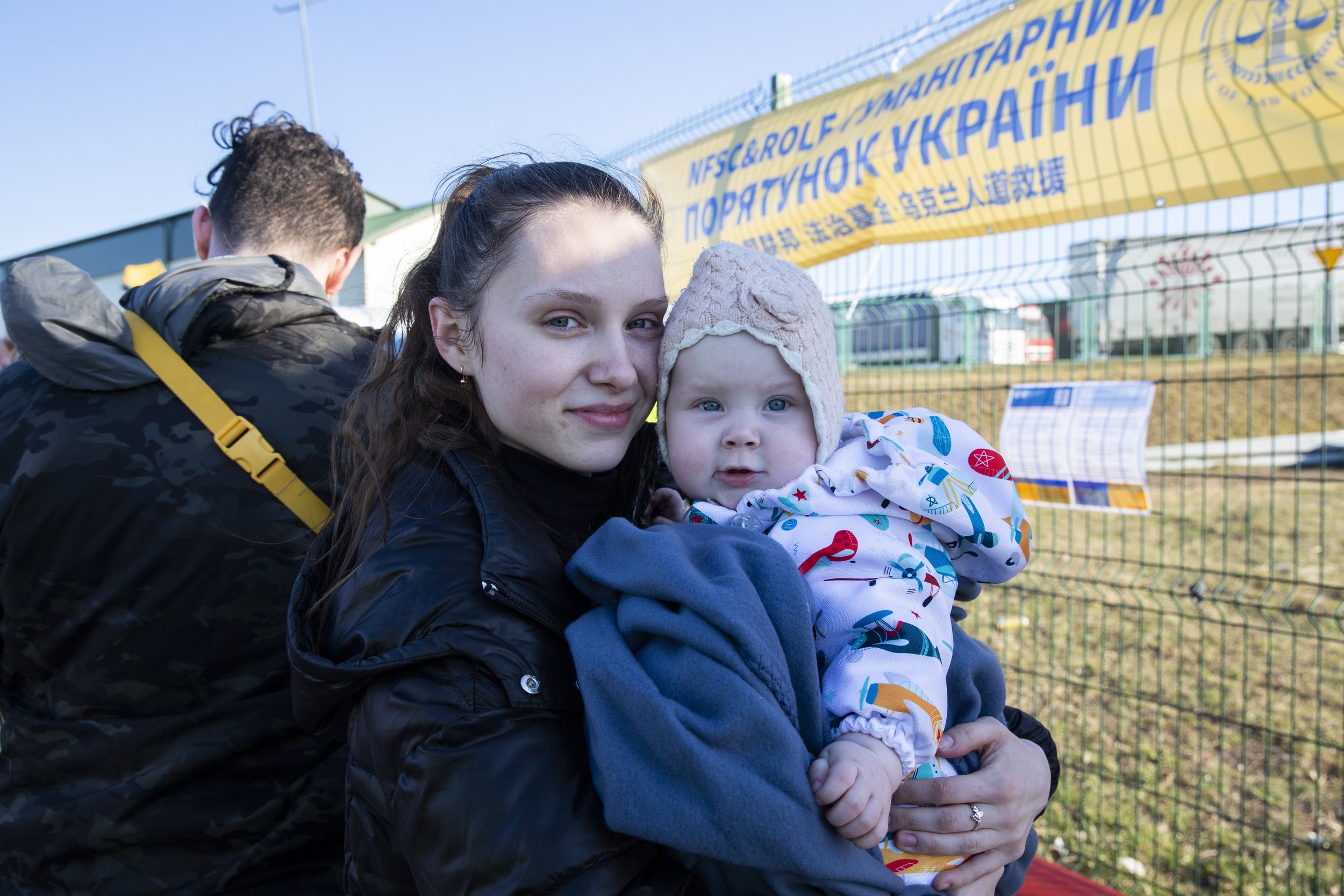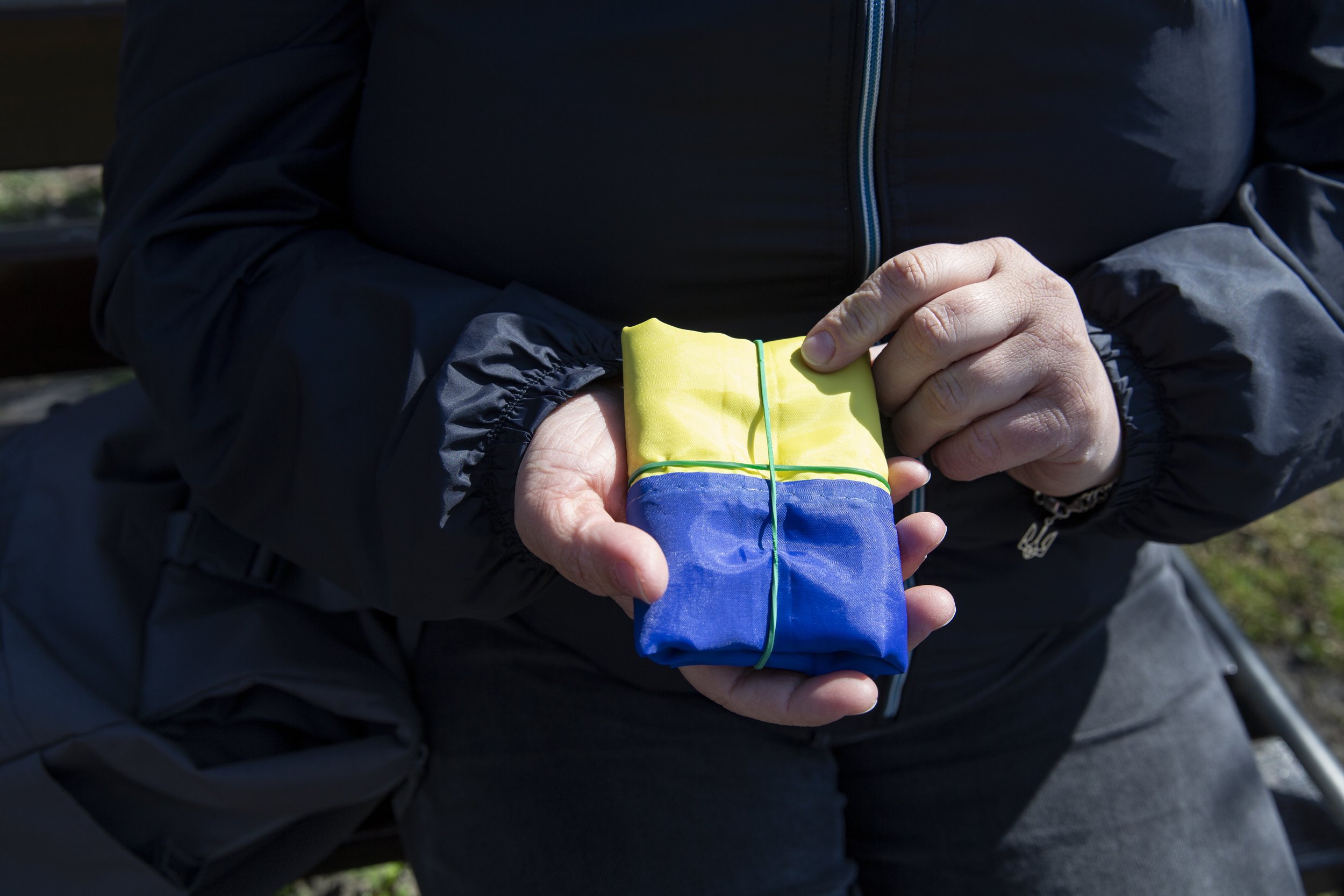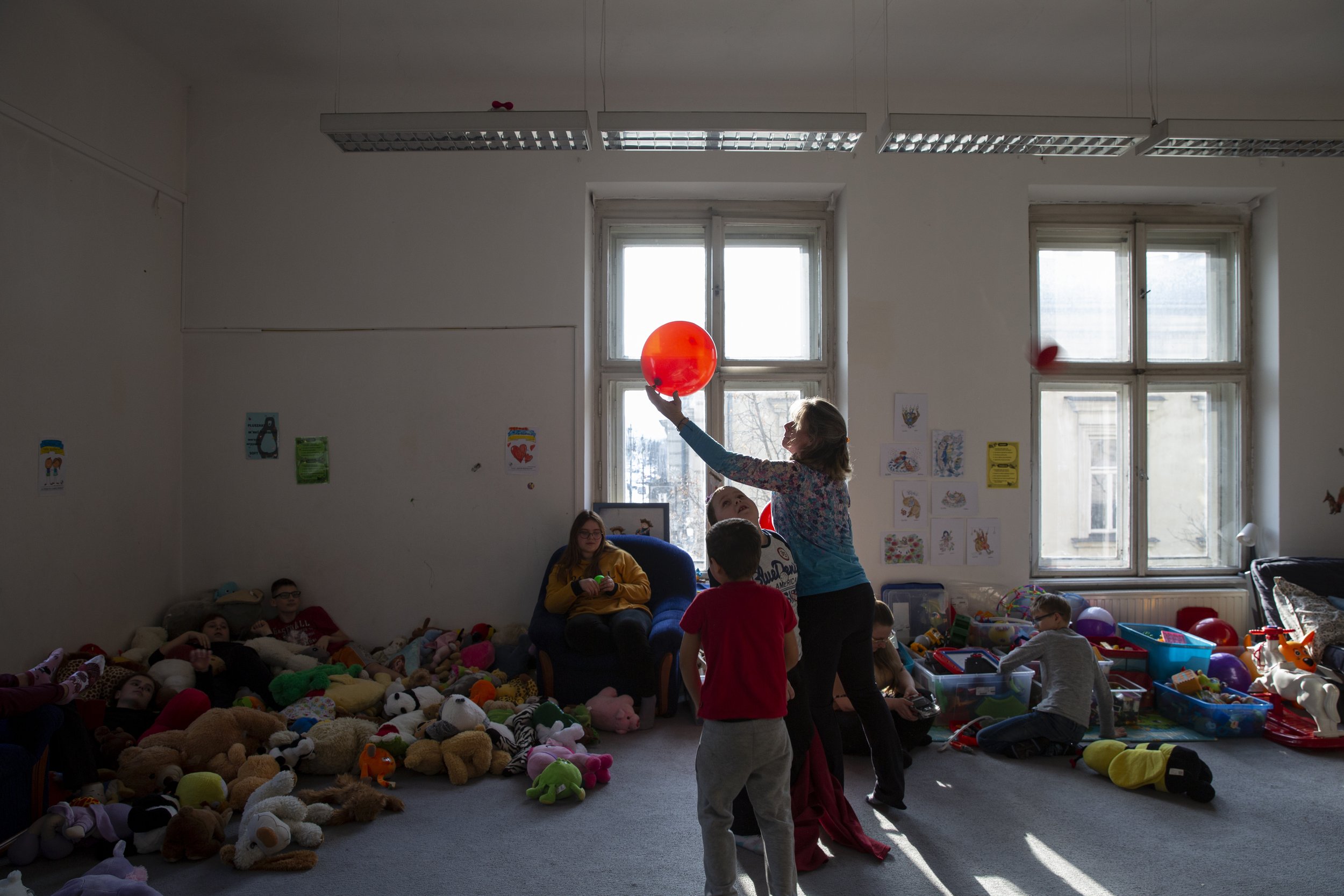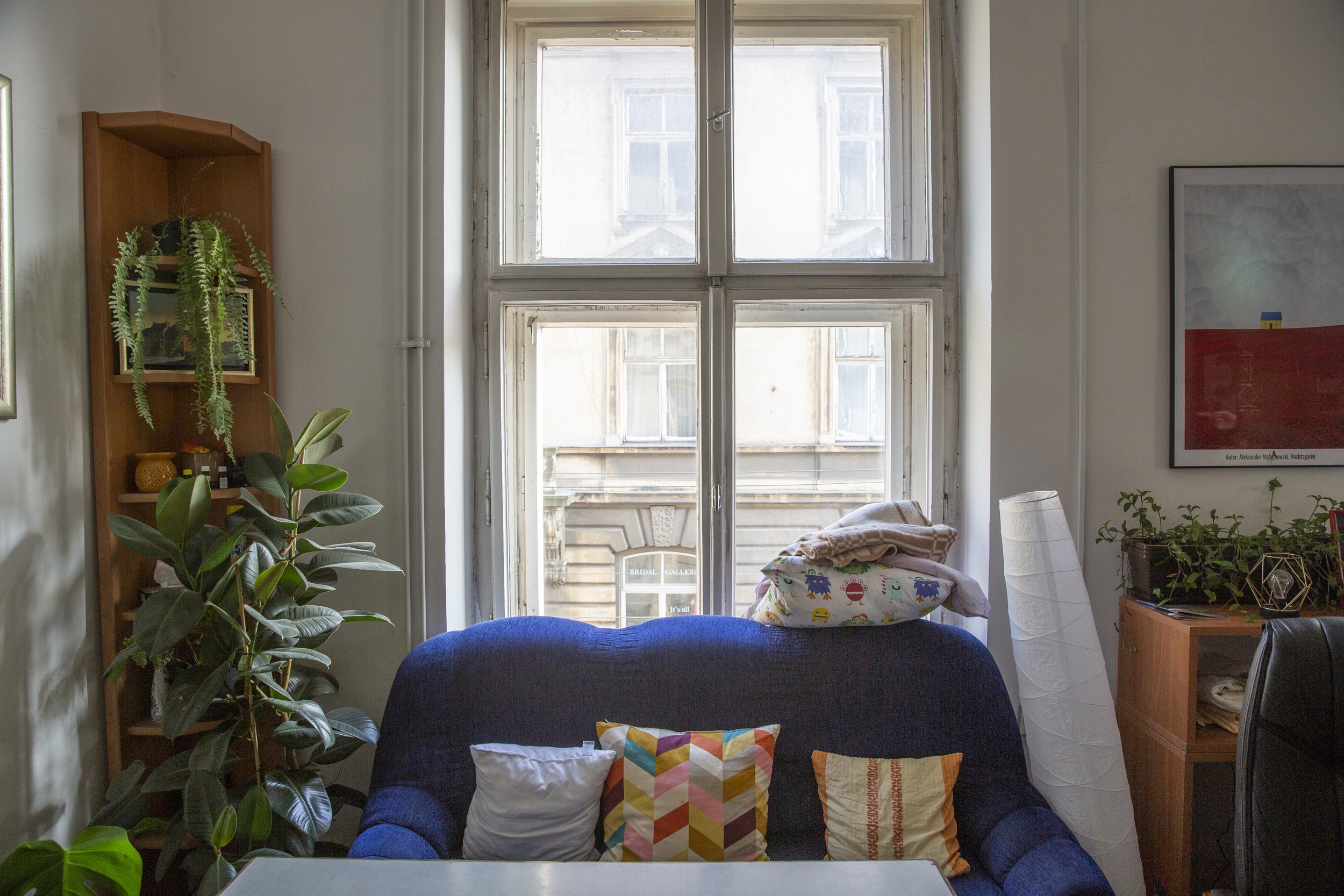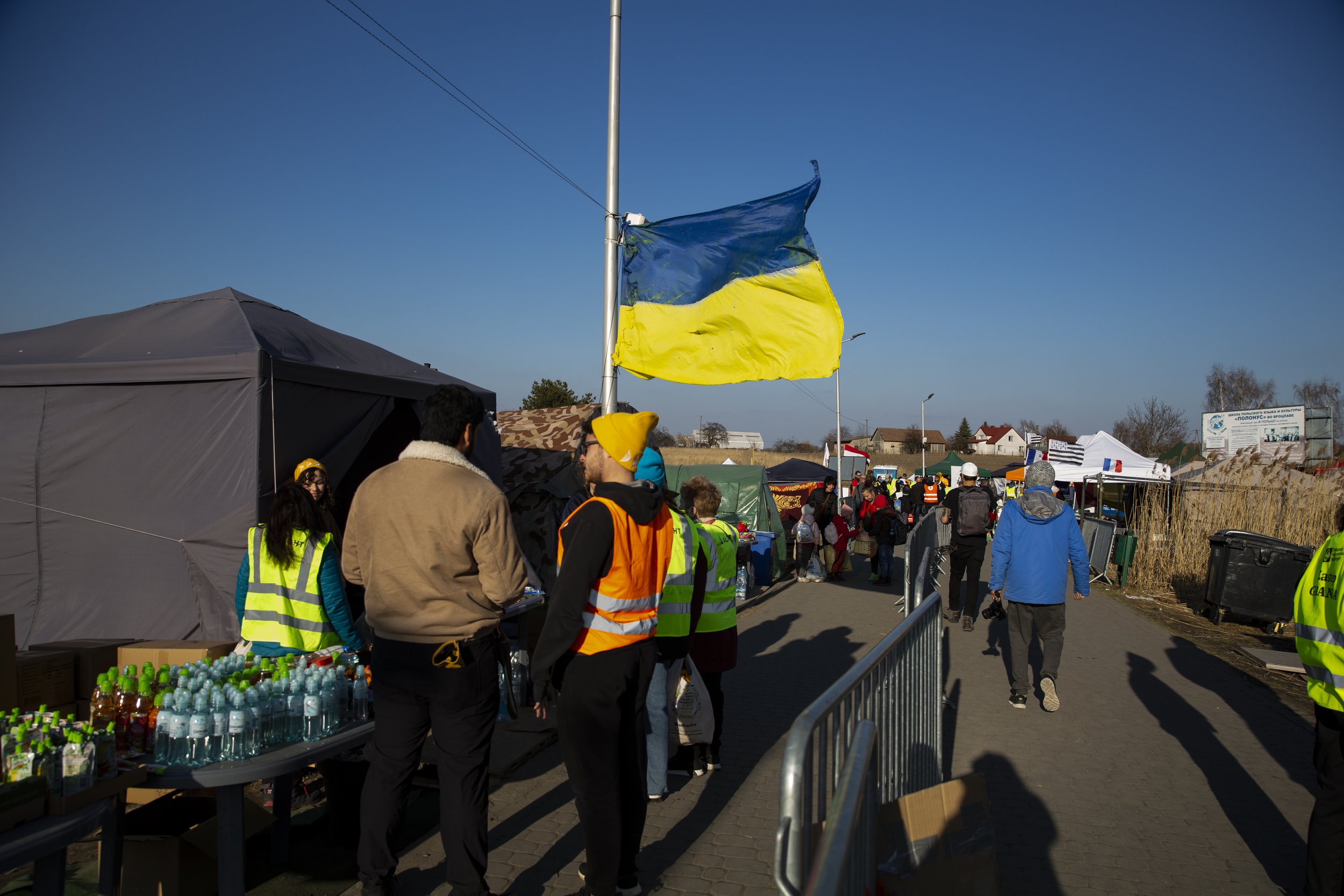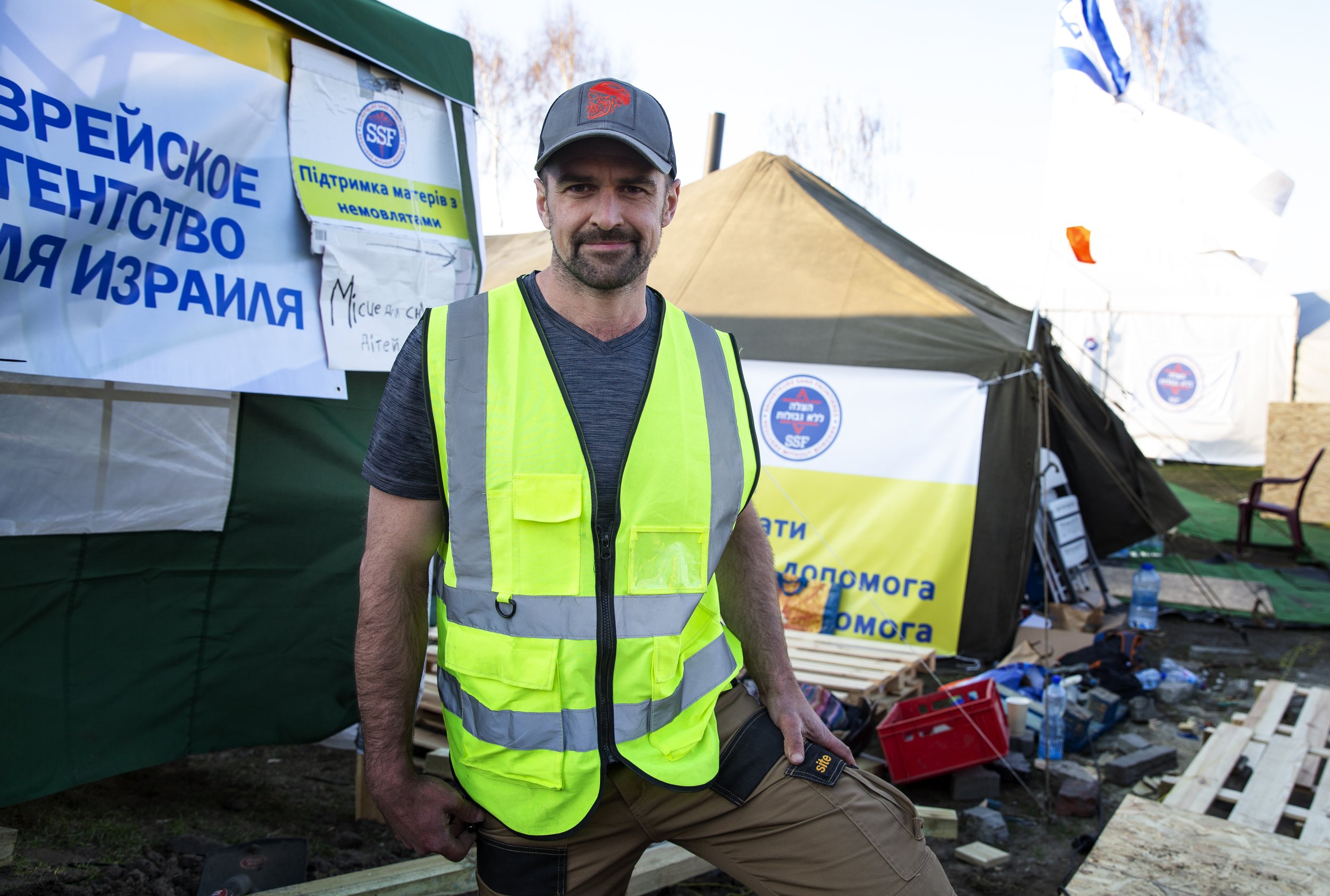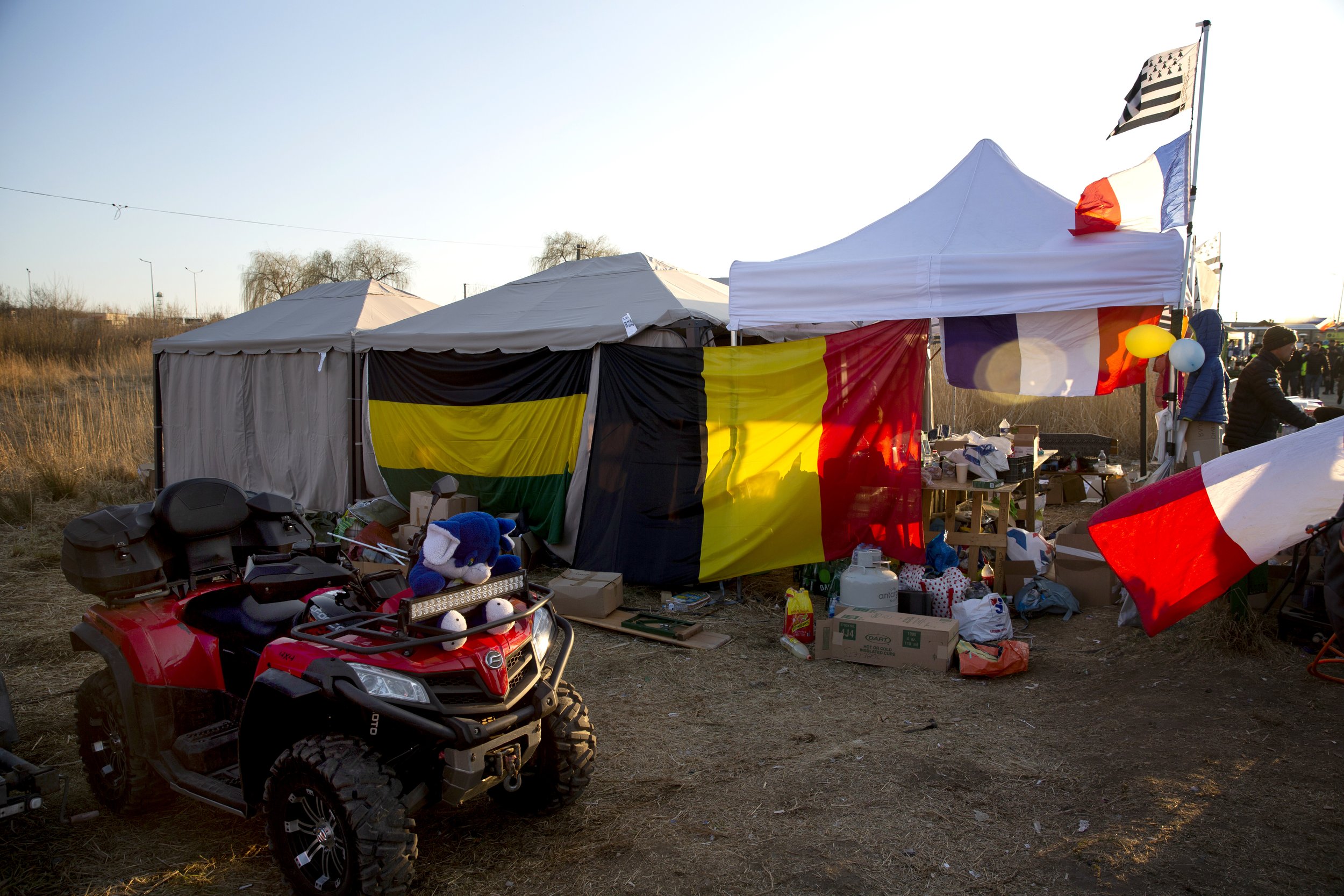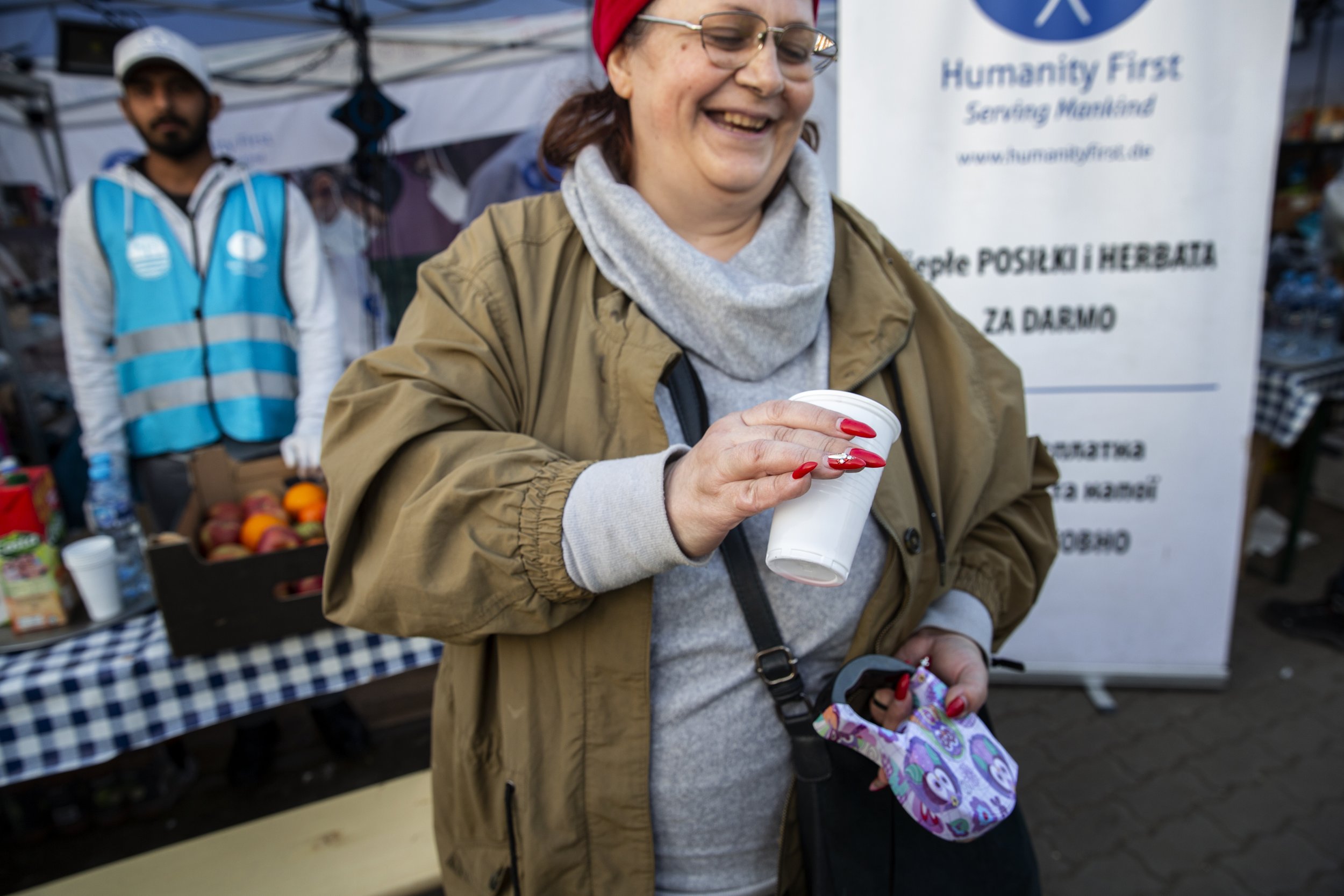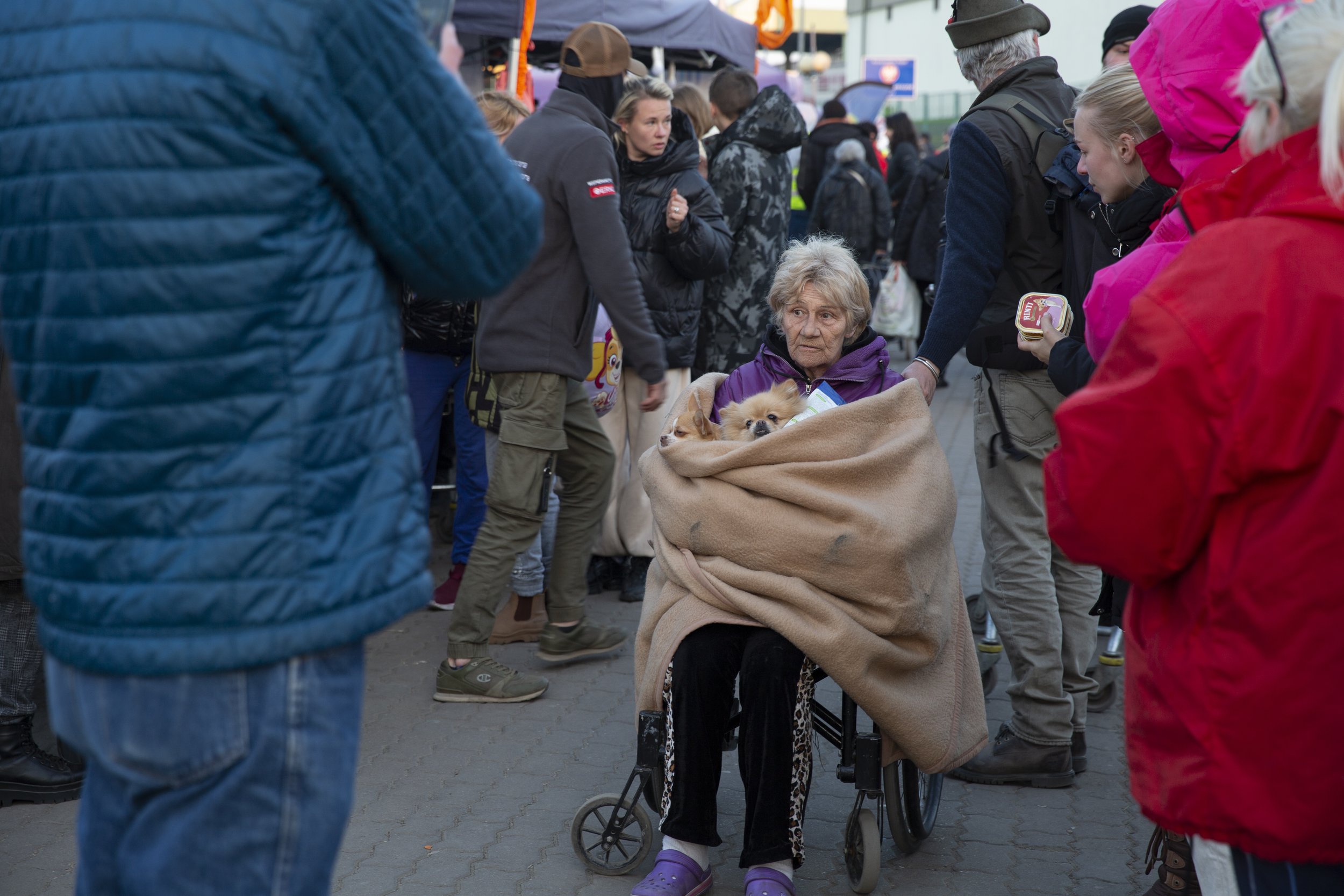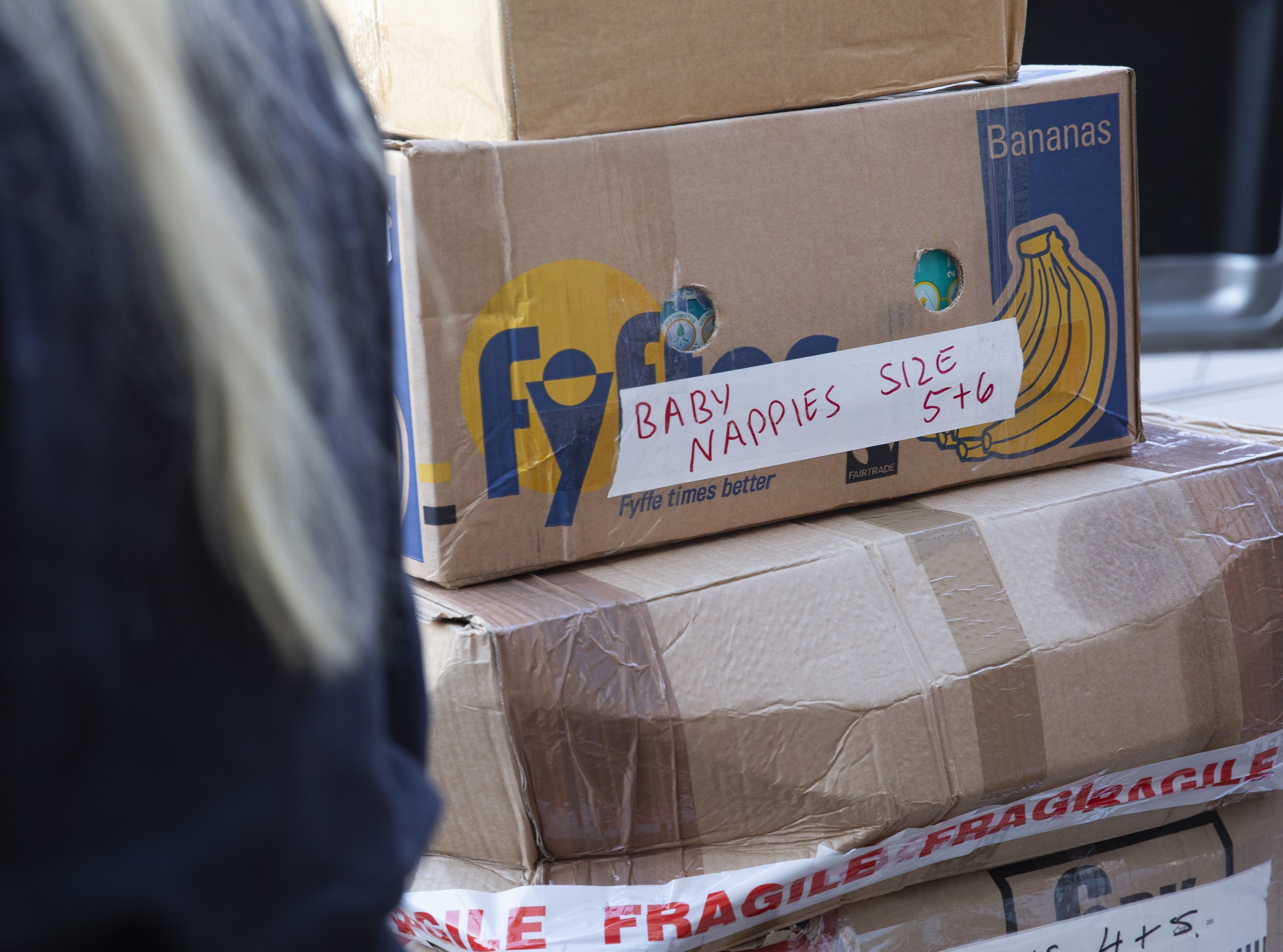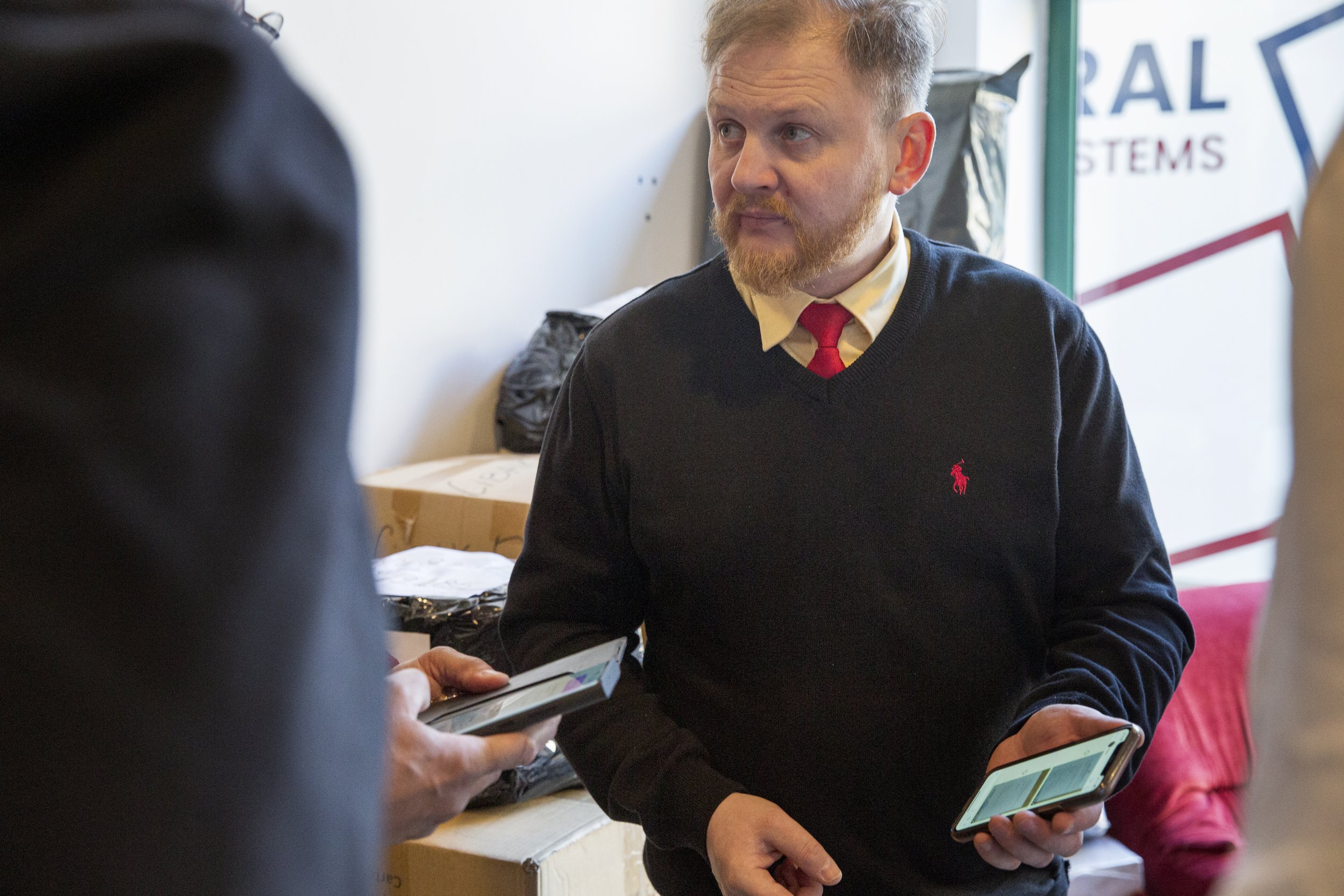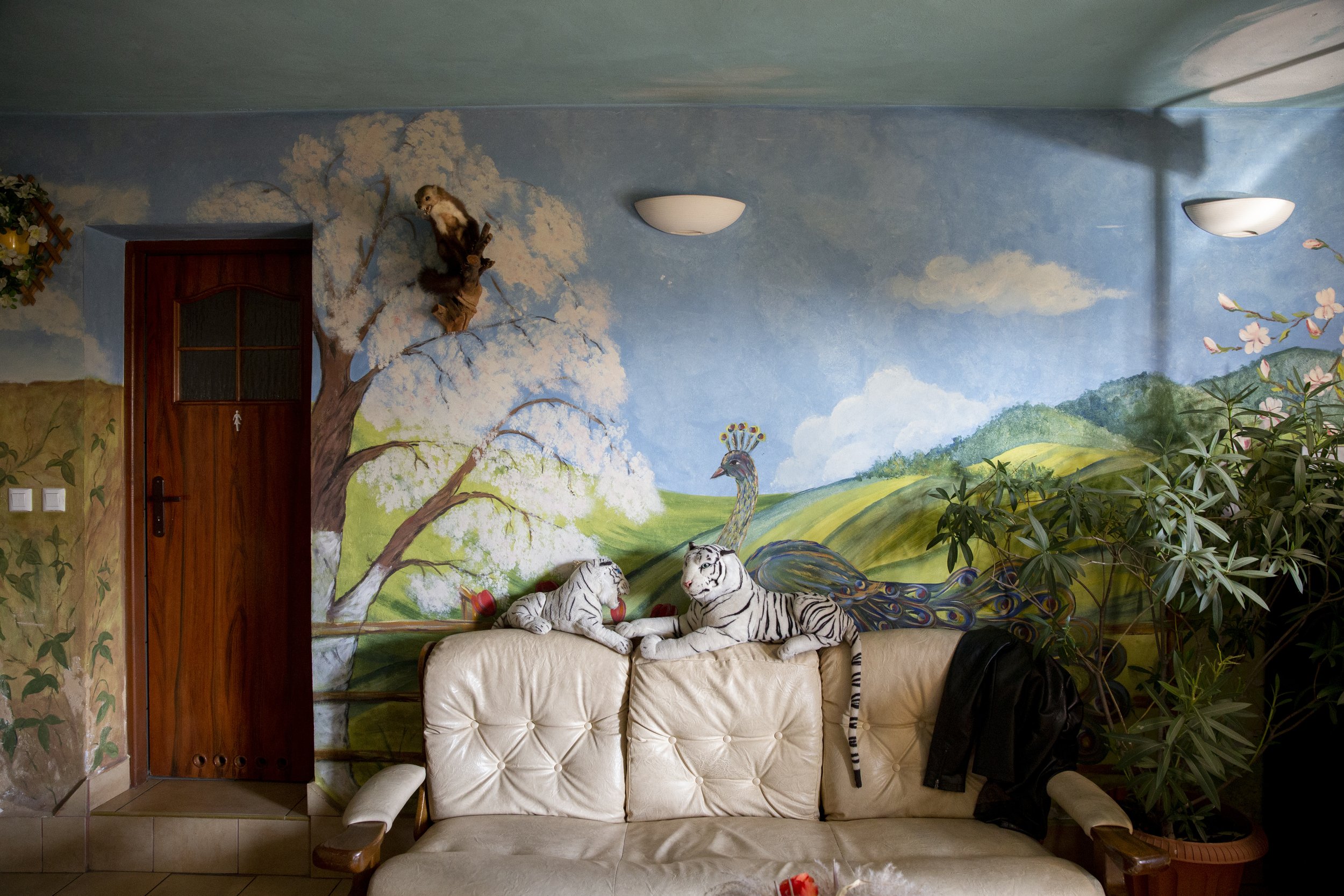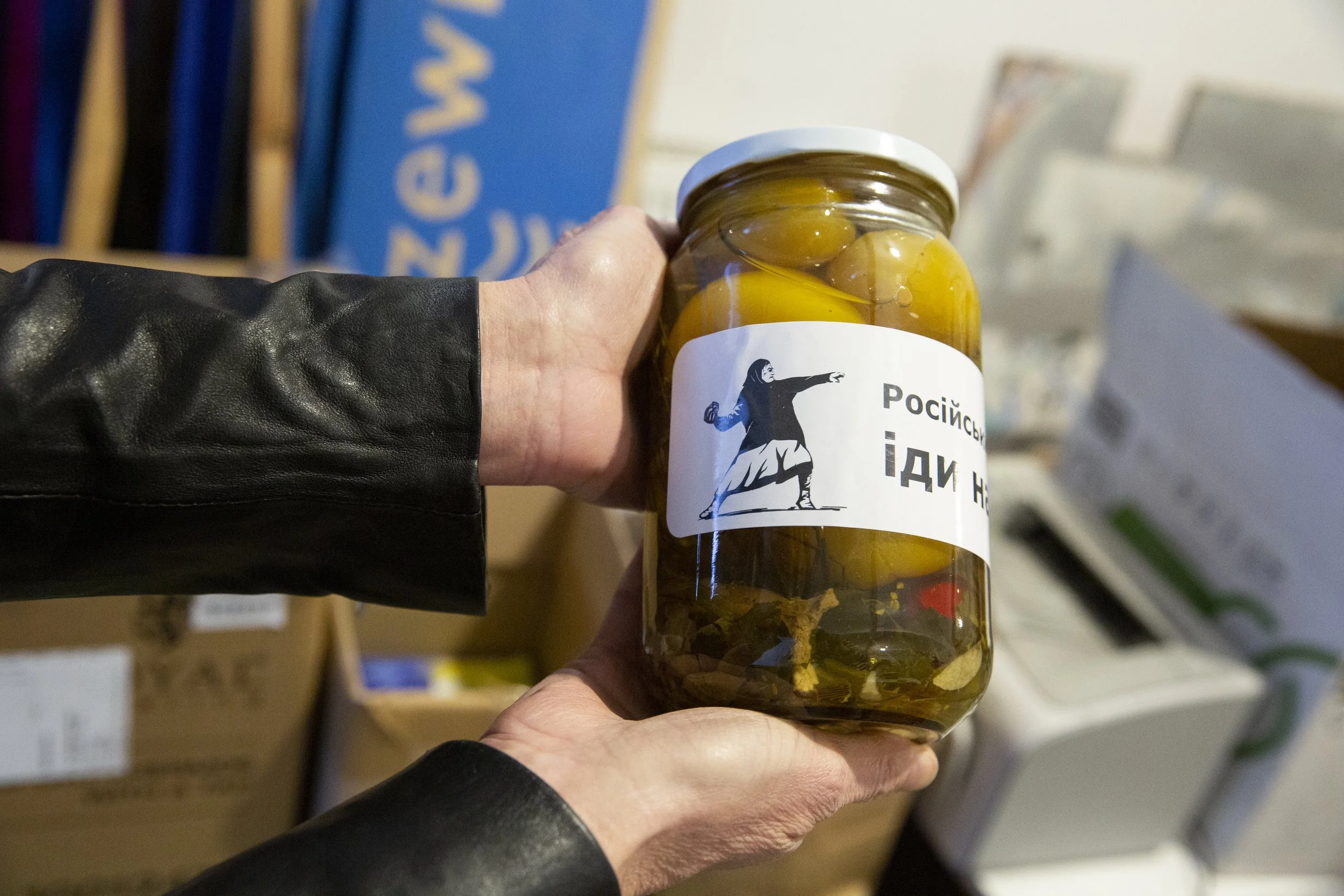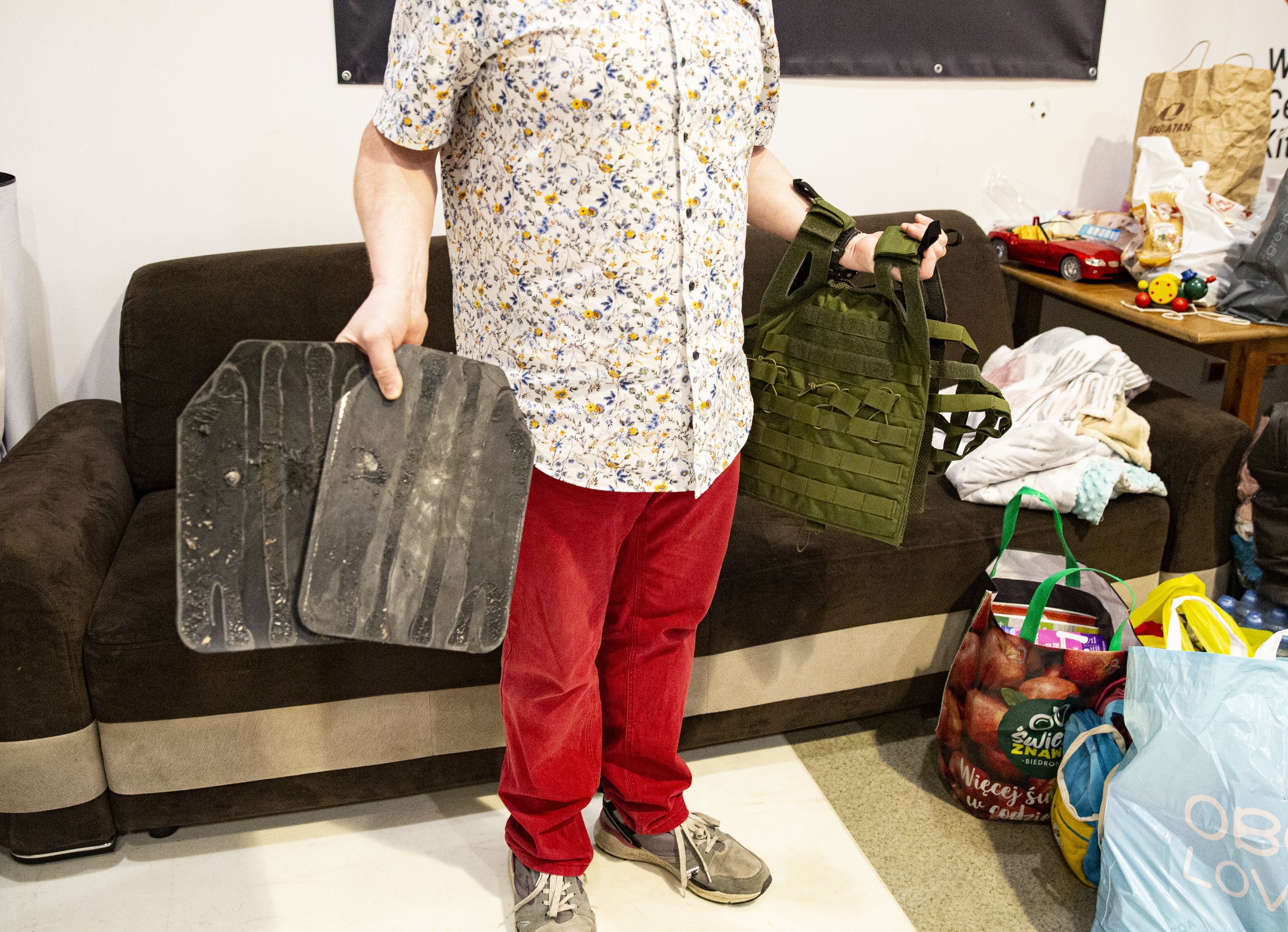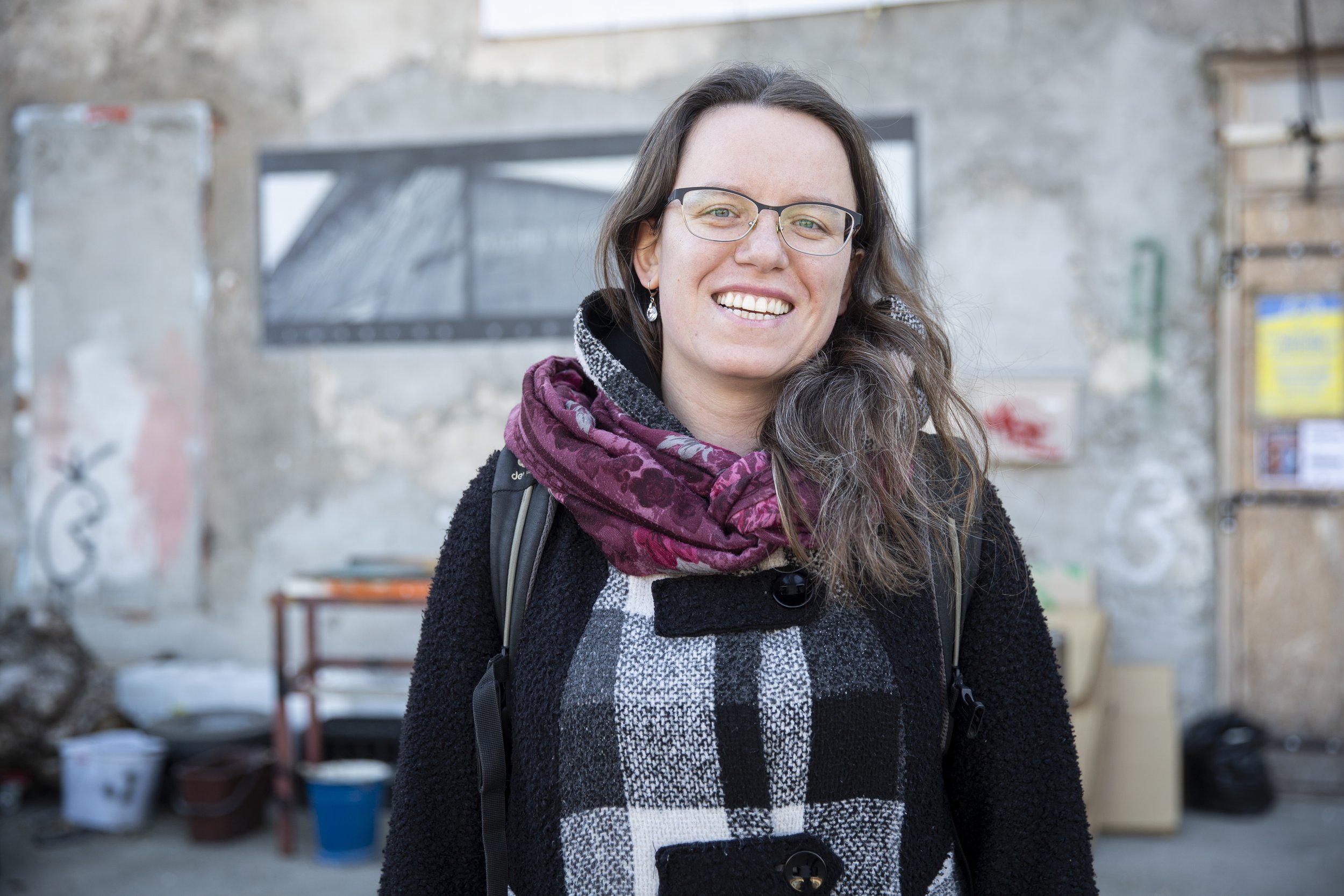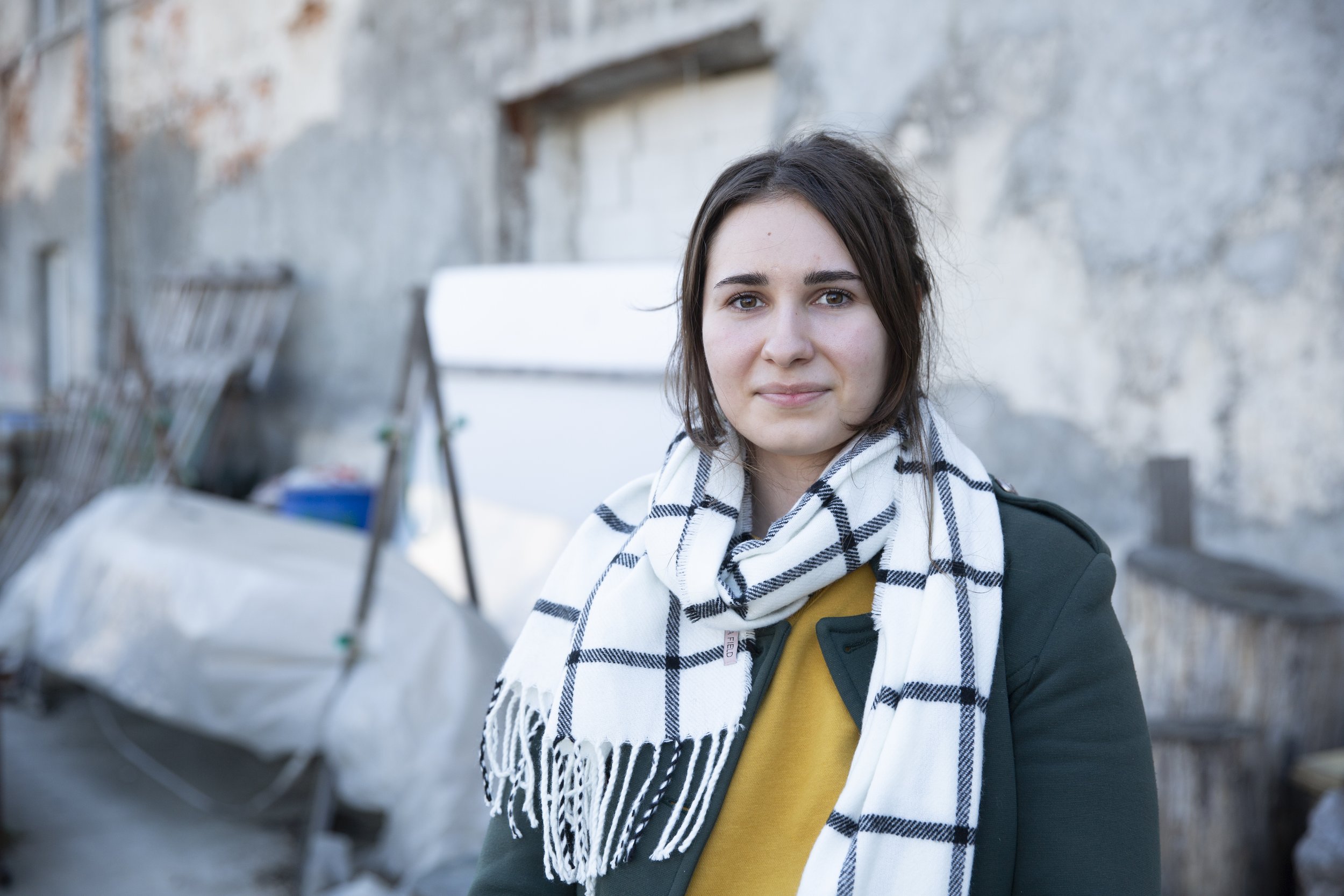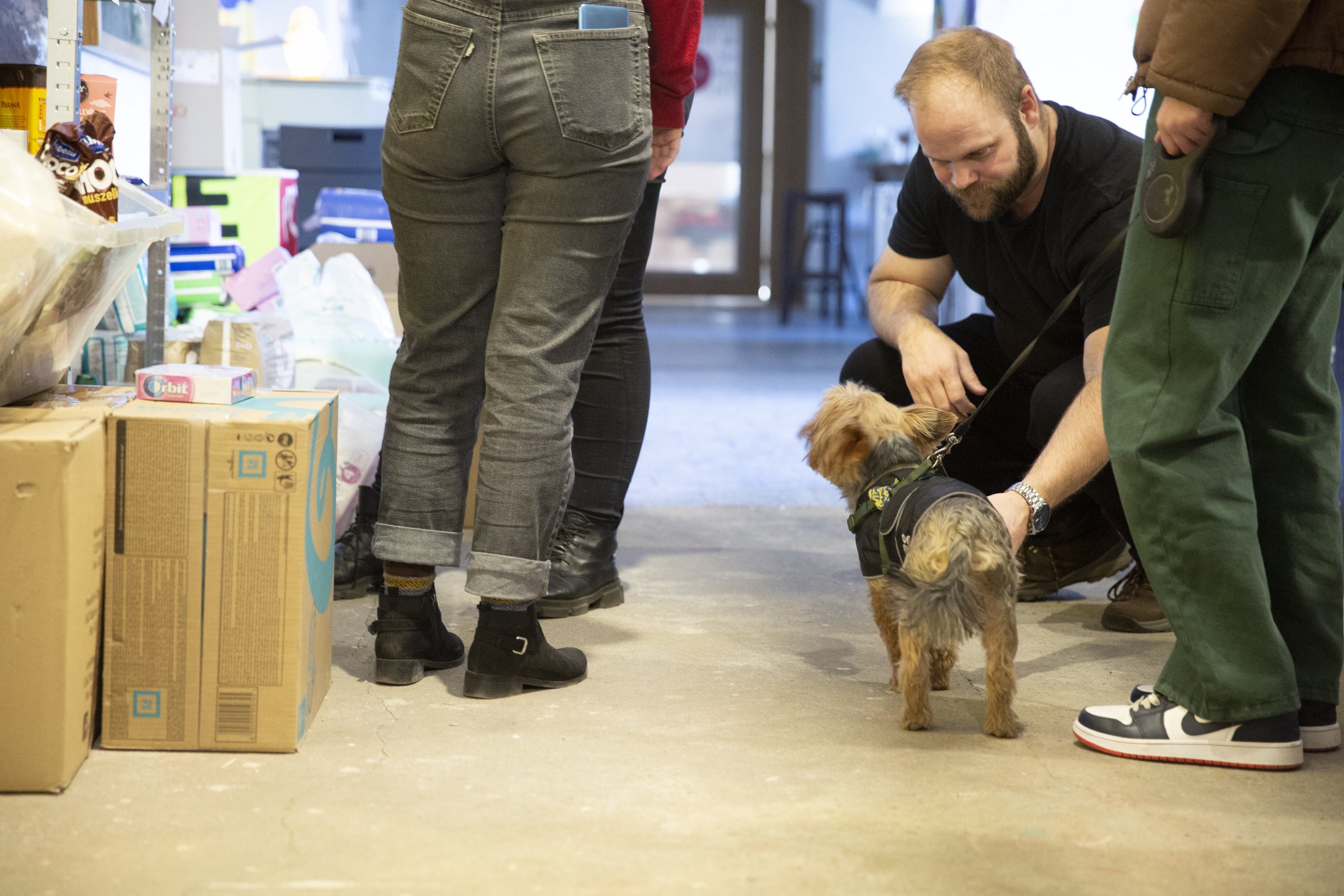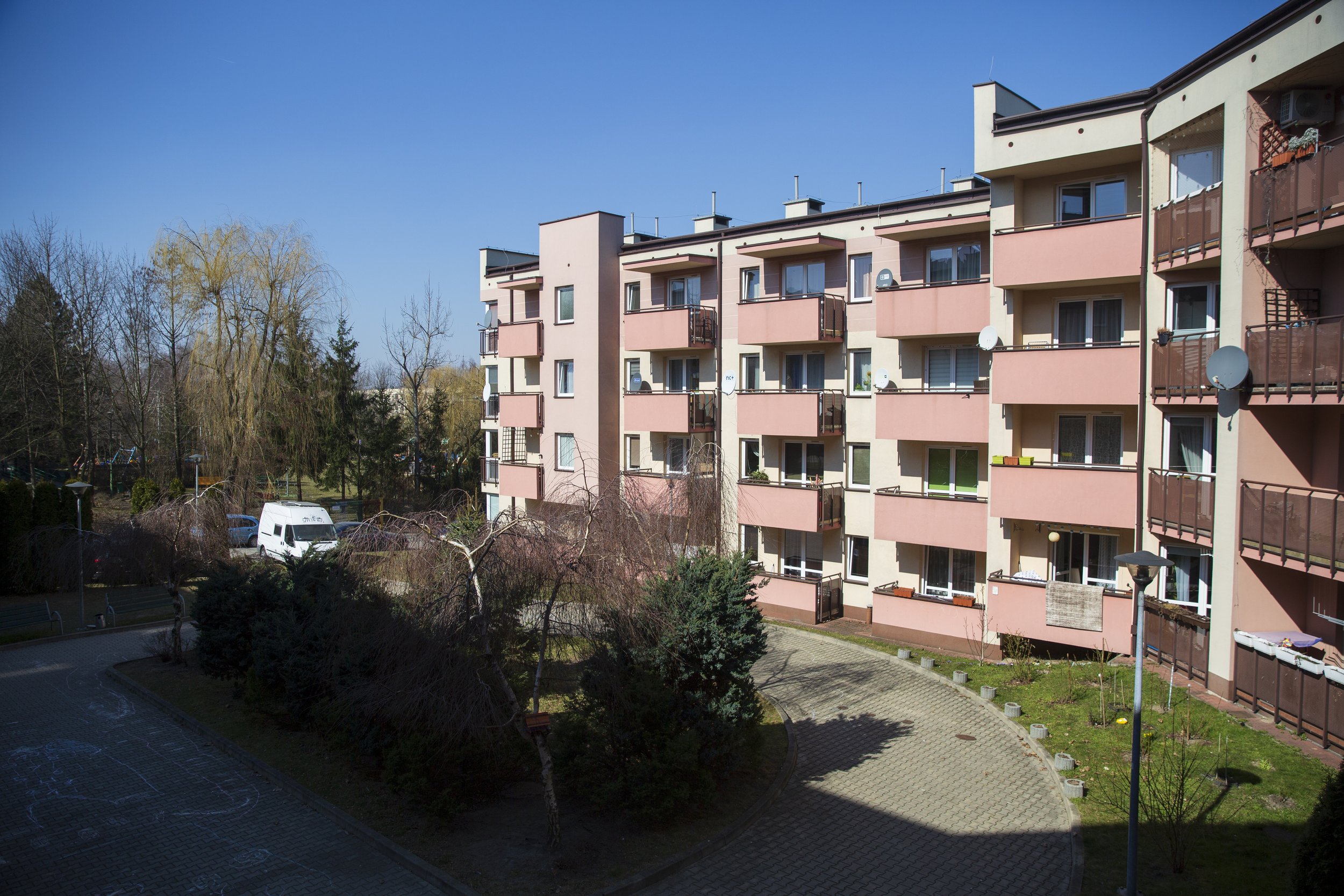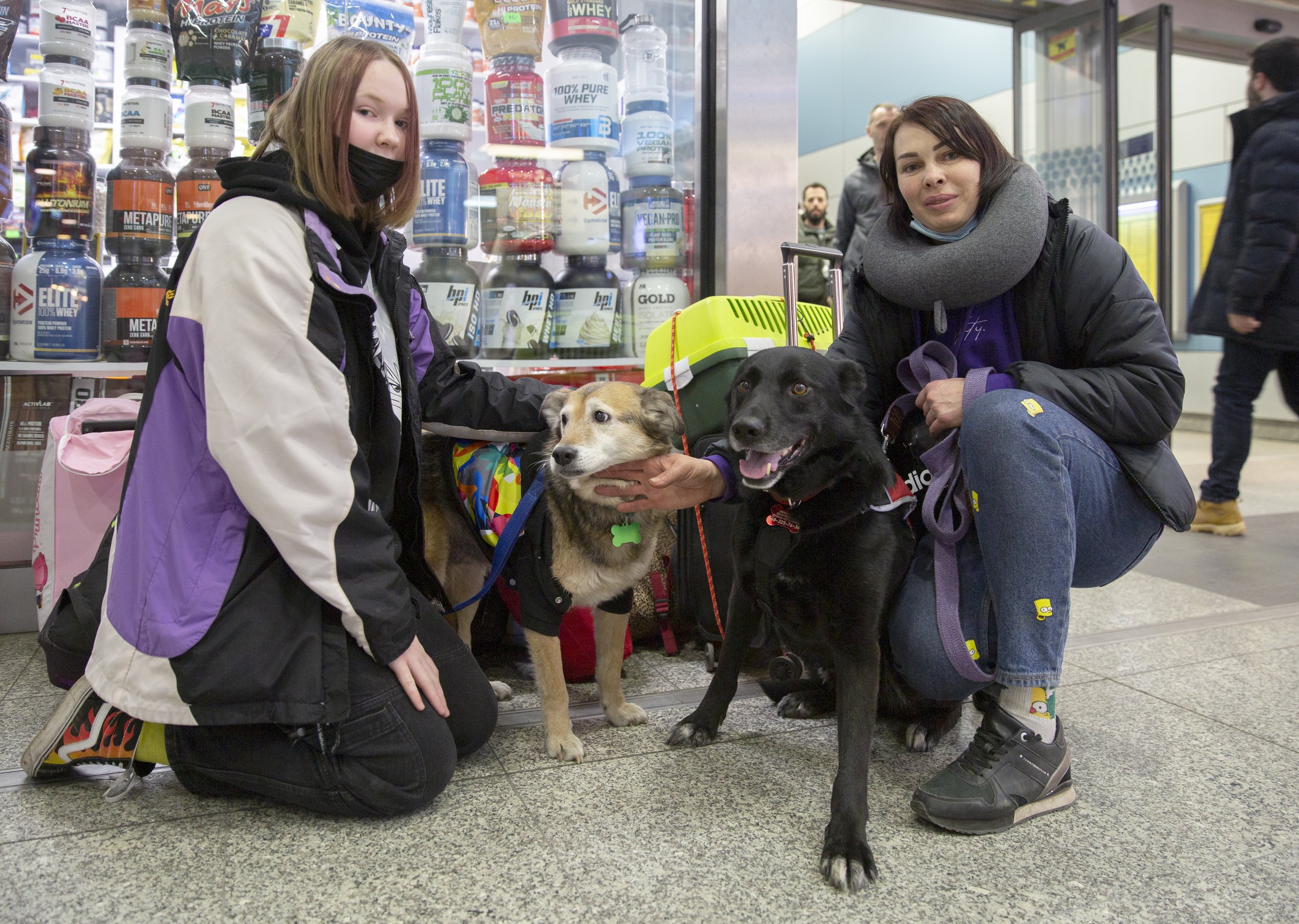Once he finally arrived in Nizhyn, he stayed two days. He delivered the medical supplies and food he brought with him, through short videos, he showed me the condition of the city. I heard air raid sirens in the background of one clip as he talked about corpses littering the streets, unmoved unless they directly block the road. Another shows soldiers in a hospital recovering and heading back out into the field. Still another video shows undetonated land mines, dropped there by Russians. In front of homes, around playgrounds, they remain until a division of the army can come and neutralize them, cordoned off with warning tape. More clips show apartment buildings destroyed, he describes a family having dinner when a missile was shot into their apartment killing them all, he shows the remaining shell of the apartment. A clip of cellars that have been converted into makeshift living quarters. And still more clips of soldiers asking for war supplies- night vision goggles, scopes. Finally, a short clip of two older women in an apartment on sewing machines, sewing the coverings for bullet proof vests.
Leaving Nizhyn, he was routed through a highway that is notoriously difficult to survive, the local soldiers tell him not to go, that he will likely not make it, and to wait it out, maybe something will change. Flabbergasted, I listen as he described the journey- specifically this portion, where, again, he is shot at but not shot- and truly, most of the journey has been beyond belief. It is difficult to imagine how he made it through this notoriously dangerous stretch of highway, this place where, as he tells it, only 1 in 25 make it. Too, his truck has the characteristics of a large, red, elephant- lumbering and difficult to miss. He doesn’t really reply to this, just looks at the photos he’s showing me as though it took place a year ago. He laughs when I bring up the adage about cats having nine lives, it is a familiar saying to him.
As he continued towards he Kyiv, he becomes aware that the tedious military checkpoint that he’s been so used to every 10-20 km, are no longer. For 2.5 hours he drove with only the sound of his tires on the road, a silence more unnerving than the sound of bombs exploding in the distance. The fantastic dark thoughts crept in, ricocheting around- what if I am the only one left?
This changed once he approached Kyiv and small signs of life appeared, military checks began again, though the streets remained empty. On his way back from Kyiv to Vinnytsia, a military escort that guided him part of the way, taking short cuts and navigating around check points. They remembered him from the days before, they heard he was successful in dropping off much needed supplies and food, they were happy and they thanked him. At this point of the journey there was more joy than fear. All were happy that he was alive.
When he arrived in Vinnytsia, he planned to head back to Poland but received word that there was a mother and daughter in an occupied town outside of Kharkiv and they wanted to leave. The Russians were willing to let them go for the price of $100 per person. He was asked to go and he did, so, leaving his phone so he couldn’t be traced, but taking a burner, he started back that night somewhat retracing the 700km back towards Kharkiv. What he described sounded like a deal being brokered beetween Ukrainian partisan fighters and Russian military. He hooked up with the partisan fighters about 20 km outside of Kharkiv, they all went together to a Russian checkpoint where mother and child werewaiting. It was as though the partisans and the Russians - at least in this part of Ukraine- have reluctant, mutually beneficial, off the record dealings with each other. Therewas an exchange of money, gears are greased with nicotine. He said the partisans speak Russian and try to get along with the Russian soldiers, the only way to get anything done in Kharkiv now is to talk your way through. Some Russians help because they want to, some because the bribes benefit them. The machinations of living in a war zone.
Though this trip was in many ways harrowing and filled with more unexpected dangers than usual on his trips, Krzysztof now wants to return to the Kharkiv suburbs and get as many people as possible. He says there are thousands there and when asked if he’s worried about the price going up, Russians suddenly charging $500 per person instead of $100, he says he’s less worried about that than them taking the deal off the table. He likens it to the roads earlier, you take one way but can’t return because within an hour those roads have been destroyed. He started the beginnings of a plan before I left- had an agreement with a Polish bus company called Flix to pick up Ukrainians in Vinnytsia and bring them over the border into Poland, while Krzysztof would make the trip from Vinnytsia to the outskirts of Kharkiv and buy as many people their freedom as possible. He would put them in the back of his box truck and he’d make the harrowing journey back to Vinnytsia so that they could stay one night to rest and then be transported through relatively safe territory into Poland. In the short time he was back he contacted a few businesses to sponsor this trip, to help buy these people their freedom. This mission’s lack of certain success makes businesses wary to invest, to put their name on it, to take a risk. More disheartening still is that at least one business didn’t want to help because they have branches in Russia and were concerned that if the Russia wins the war in Ukraine then they would be blacklisted from doing future business there if they were associated with helping to free Ukrainians.




